Who owns the technology?
CRISPR-Cas9 New Zealand shined as capital of APAC seed
ASC 2023 Summary

Shedding light on legal dynamics
New ED Francine Sayoc takes helm of APSA Secretariat, strategy
Three Decades & Counting Paying tribute to APSA's heroes and champions
Passing on the torch
Enchanted by New Zealand
Congress, delegates eye China for APSA 30th anniversery celebration
VOL.30 NO.1 JAN-MAR 24 apsaseed.org
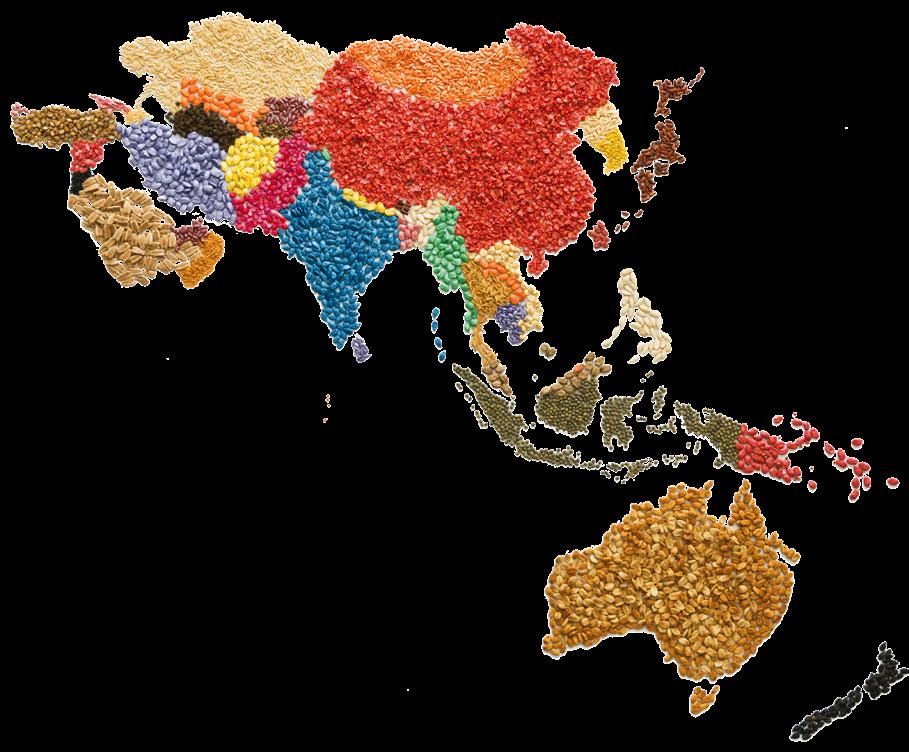
Join, advertise in Asian Seed Magazine Have a Seed apsaseed.org Seedling 2 Quarters (6 months) $4,850 $4,150 $4,150 $3,100 $2,500 $1,450 $900 Centerfold Full Spread Back Cover Inside Front / Back Cover Full Page Half page Quarter page Page(s) Seed 1 Quarter (3 Months) $2,700 $2,300 $2,300 $1,700 $1,400 $800 $500
Package Bonus for DMS credit must be applied towards Digital Media Sponsorship benefits, and any unused credit cannot be redeemed/converted to other forms of credit/discounts Website & social media advertorial / article 1,000 words + 4 pictures $800 Website & social media advertorial / article 500 words + 2 pictures $500 Webinar / Virtual Workshop for 30 second promo video $500 Webpage Banner Sponsor (3 months) $400 Newsletter Banner Sponsor (3 months) $400 Exclusive Video Sponsor (2 months) $200 APSA social media content post (Facebook, Twitter, Instagram, Linkedin) per 1 time post $50 Spend $800-2,200, can select DMS benefits value $1,000 Spend $2,201-5,000, can select DMS benefits value $1,500 Spend >$5,000, can select DMS benefits value $2,000 Sapling 4 Quarters (12 months) $8,650 $7,350 $7,350 $5,450 $4,450 $2,550 $1,600
Digitial Media Sponsorship (DMS) benefits

Takahiro Ando
Dr Chua Kim Aik
Mrs Zhu Xiaobo
Dr Yang Yasheng
Dr Kwanghong Lee
Dr MD Ali Afzal
Mr Farhan Tahir
Dr Frisco Malabanan
Mr Rahul Pagar
Ms Chia-Hui (Linda) Chang
Mr John Mizicko
Dr Sumitra Kantrong
Mr Nicolas Perrin
Eexcutive Director
Ms Francine Sayoc Technical Advisor
Dr Shivendra Bajaj Membership Coordination Manager
Mr Komsak Kamjing Technical Program Manager
Mrs Xiaofeng Li Event Manager
Mr Mike Kingpayom Technical Coordination Manager
Mrs Kunaporn Phuntunil Chief Accountant
Ms Narima Setapanich Partnership and Compliance Manager
Ms Weeranuch Mhadlhoo Communications Manager
Mr Steven Layne ICT Officer
Mr Visavesa Chuaysiri

ASIAN SEED − 3 Asian Seed & Planting Material Volume 30, January - March 2024 Official Publication ISSN 0859-1776 APSA EXECUTIVE COMMITTEE 2024 P.O. Box 1030, Kasetsart, Bangkok 10903, Thailand Tel: +66 (0) 2-940-5464 Fax: +66 (0) 2-940-5467 Email: apsa@apsaseed.org www.apsaseed.org Asian Seed & Planting Material is published quarterly as the official publication of the Asia & Pacific Seed Association (APSA). APSA is a provident organisation dedicated to the promotion and improvement of the seed industry in Asia Pacific. Asian Seed has a pass-on readership of 3,500 worldwide. Eighty per cent of our subscribers reside in the Asia-Pacific region and include senior executives in seed enterprises, government agencies, universities and national seed associations. Subscriptions are available on the APSA website or from the Secretariat. Editorial contributions and advertising enquiries should be sent to the Secretariat or by email to apsa@apsaseed.org. APSA holds the right to accept or reject contributions. The contents of this magazine may only be reproduced with the written consent of
Office Bearers President Dr Manish Patel Vice President Mr Koh Teck Wah Treasurer
Executive Committee Members
APSA.
Mr
In this issue Breaking down factors for why China is ready to be the center of the seed universe in 2024 and beyond Overview of China seed sector Page Contents 4 President's Address 6 Director's Desk 8 Seed World exclusive 14 Sanya, China seed hub 22 ASC 2023 Report 28 Technical Affairs updates 42 APSA 30 years celebration 14 In an exclusive interview, Francine Sayoc reveals her leadership style, plans and vision for the association, jazz singing and more. Meet APSA's new chief executive 40
2024 off to blossoming beginnings
Trust all is well with APSA members and partners. The first quarter of the year has been a fruitful time for our association, and indeed for your president.
Starting off the year, I had the privilege of participating in the momentous centenary celebration of one of APSA’s members, Bharat Nursery Pvt. Ltd. at the esteemed ITC Royal Bengal. It was an honor to join esteemed guests from various sectors, including the Agriculture Minister of West Bengal, renowned scientists, and industry stakeholders. Witnessing the culmination of a century-long journey was truly inspiring, highlighting the enduring legacy and contributions of Bharat Nursery Pvt. Ltd. to the seed industry and agricultural sector.
I couldn't help but admire the resilience and commitment demonstrated by Bharat Nursery Pvt. Ltd. over the years. From its humble beginnings in 1918 to becoming a beacon of innovation and service, the company's evolution symbolizes the spirit of entrepreneurship and dedication to excellence. For me, the celebration underscored the importance of fostering trust and collaboration within the agricultural community.
In February, we warmly welcomed Francine Sayoc as APSA's new Executive Director. Francine's impact on enhancing APSA's social media presence, branding, and international relations has been remarkable from the outset. Since joining the secretariat, she has been diligently working to improve our organization and planning some engagements in the Philippines. Aside from successfully hosting APSA’s first Phytosanitary Expert Consultation outside of Thailand (see page 36), Francine also represented APSA at the China Seed Congress in Sanya earlier this month, setting the stage for APSA's own Asian Seed Congress, which will take place in the same venue later this year. For further insights into Francine's initiatives and upcoming events, please refer to page 40 and her address on the
following page.
March has been a bustling month for me in India, beginning with the Indian Seed Congress hosted by the National Seed Association of India (NSAI) in Pune, Maharashtra State. This marked the 11th edition of the congress, and one notable highlight was my participation in a panel discussion focused on 'Public-Private Partnership for Germplasm Exchange and Varietal Evaluation for Regulatory Purposes'. During the discussion, I highlighted our collaborative efforts with WorldVeg to drive innovation in the seed sector. Additionally, I underscored the growing importance of the APAC region in the global seed sector, given its status as the most populous region with significant agricultural activity in tropical and sub-tropical climates. I emphasized the role of APSA and other seed associations in facilitating seed production for the global market, stressing the importance of harmonizing policies and regulations across the region—a goal that aligns perfectly with our mission statement.
While in Maharashtra, I welcomed some members of the National Organizing Committee for next year’s planned Asian Seed Congress. We were joined by APSA Event Manager Mike Kingpayom to visit and inspect some of the potential venues. There is still a lot of planning and discussion to go, but let me say I am excited to be able to bring the Congress back to India next year in my final year as an Office Bearer. Stay tuned for more updates.
Earlier this month, I had the pleasure of attending a conference organized by FSII on Direct Seeded Rice (DSR) for sustainable agriculture in Delhi. I was struck by the remarkable turnout and enthusiasm among participants. The event underscored the significance of rice as a seed crop and highlighted the imperative of sustainability in its production, particularly in the APAC region. FSII's commitment to promoting DSR aligns closely with APSA's mission

of advancing the trade and production of quality seeds for sustainable agriculture, ensuring the global population's access to nutritious food.
The workshop provided valuable insights into how DSR practices can not only enhance agronomic efficiency, potentially saving farmers up to 30-40% in costs, but also contribute to carbon credit generation, thus fostering a safer climate and land. DSR represents a crucial step towards precision farming and holds the promise of delivering healthier rice to our tables. My heartfelt commendations to the FSII team for their efforts in organizing this essential event, which addresses the pressing needs of rice growers, the seed industry, and global sustainability concerns alike.
Also in March, I had the privilege of representing APSA at the 2nd Seed Round Table in Hyderabad, India. Hosted by the Agri. Dept. Netherlands Embassy, NBSO, and a number of Indian and India-based seed companies, this gathering was a pivotal moment for collaboration within the seed industry. Joined by APSA Chair Mr. Rahul Pagar, we engaged in insightful discussions aimed at strengthening partnerships between Indian and Dutch stakeholders. Our focus was on addressing critical challenges facing the sector, including policy frameworks and capacity building. It was heartening to witness the collective commitment towards fostering sustainable agriculture practices and ensuring farmers' access to quality seeds. We emphasized the importance of involving seed associations like APSA to streamline efforts and avoid duplication of work. Moving forward, we remain dedicated to furthering these partnerships and driving positive change within the seed industry.
As we reflect on our recent initiatives and engagements, it's clear that collaboration is key to achieving our goals. The Seed Round Table served as a platform to exchange best practices and identify opportunities for mutual
4 − ASIAN SEED RESIDENT’S MESSAGE P
Dr Manish Patel APSA President

growth. We are grateful for the support of our members and partners in advancing our mission of promoting a vibrant and sustainable seed industry. With ongoing efforts to enhance policy frameworks and strengthen industry-government relationships, APSA is poised to play a pivotal role in shaping the future of agriculture. Together, we will continue to drive innovation, foster collaboration, and empower farmers across the region.


Bharat Nursery celebrates its centenial
A Brief Historical Perspective.
Bharat Nursery Pvt. Ltd. recently marked its Centenary Celebration at ITC Royal Bengal, Kolkata on 05.01.2024. The programme was inaugurated by honourable Agriculture Minister of West Bengal and graced by renowned scientists, Government officials, international and domestic long-term associates, channel partners, employees and relatives, approximately 700 esteemed guests including the president of APSA, Dr Manish Patel contributing to the grand success.
The event was filled with warmth, felicitation, award ceremony, featuring songs, recitations, dances, and a chorus by the office staff, adding a unique charm to the corporate affair. It was the celebration of relationships, resilience, and shared aspirations.
Bharat Nursery Pvt. Ltd has crossed more than 100 years of existence. It is no mean feat to keep going in this keenly competitive world for over a century. The seed that the late Sri Baneswar Ghosh had sown with his sons in 1918 has now, nurtured by his worthy successors, grown into a huge tree giving shade and shelter to thousands of people directly or indirectly attached to it.
The company has been engaged
in research, production, processing, export, import and marketing of all kinds of seeds having its registered office at Kolkata, India. It has been marketing seeds in the brand name of Chakra Seeds & Sona Seeds.
In the course of its journey, it has set up research and development stations. It has equipped its team with the latest technologies to adopt advanced technologies and breeding techniques to produce quality seeds of required attributes. Besides, in the sphere of employment generation and foreign money earning for the country, the company’s role demands special mention.
Keeping in mind the needs of the farmers, the company has also gone into production & marketing of micronutrients, bio-pesticides, and fish feed and also publishing agriculture-related books through its sister concern. The seeds of Bharat Nursery have brought smiles to the faces of millions of farmers over the decades.
The Company has all along been cultivating a spirit of love and trust between itself and the farmers, producers, distributors, dealers, channel partners, importers and its employees. Preservation of this legacy of love and trust is the crowning achievement of Bharat Nursery Pvt. Ltd.



ASIAN SEED − 5
Email: info@bharatnursery.in Website: www.bharatnursery.in
30-years young: APSA onboarding and initial impressions
My warmest greetings to APSA members and partners.
As I write this message, I am three days away from celebrating my second month as Executive Director. I continue to be filled with excitement and joy as I embark on this journey with you all.
I spent my early days getting to know the Secretariat and the APSA leadership through the Office Bearers (OB), Executive Committee (EC) and members of the technical groups. I have so much to learn and discover.
2024 is an exciting year for APSA as we celebrate our 30th anniversary. Three decades is a significant milestone. Our association today is the product of the commitment and efforts of many individuals, and so one of the ways we are celebrating our anniversary is by honoring the champions and advocates of APSA. (see page 42)
Aside from reflecting on our progress, our 30th anniversary is also a unique opportunity to evaluate how well we are achieving
our mission and mandate. Such a “health checkup” is necessary to ensure continued relevance, sustainability, and growth for our association in the face of evolving challenges and opportunities.
Since my arrival, I've had the privilege to engage in several events and initiatives that underscore the vital work we do together. In March, we hosted the 10th Phytosanitary Expert Consultation (5-7 March) where representatives of 15 national plant protection offices (NPPOs) participated. It was inspiring to see the spirit of collaboration towards enhancing phytosanitary capabilities in the region. I see an important role for APSA in creating opportunities for dialogue and enhancing understanding, especially between the public and private sectors.
I also joined the China Seed Congress (17-20 March) held in Sanya, Hainan Province. There, I spoke at the Plant Breeding Innovation (PBI) Roundtable on the nexus between seed trade and plant breeding innovation, how the two are inextricably linked and why we need
 Ms Francine Sayoc APSAExecutive Director
Ms Francine Sayoc APSAExecutive Director
consistent, science-based policies around genome editing to sustain innovation and ride the momentum of growth in the APAC region. I want to congratulate and thank our hosts at the China Seed Association (CSA) for such an impressive event.
While in China, I also had the chance to catch up with the China National Seed Trade Association (CNSTA) who is our partner for the upcoming Asian Seed Congress 2024 in Sanya on 2-6 December. We are making all the necessary preparations and looking forward to welcoming the Asia-Pacific seed community there!
My experiences in the last two months have only deepened my admiration for the incredible work being done by our Secretariat, association leaders, and members across the region – and have shown me the infinite potential that lies ahead. I hope you will join me in furthering our mission and making meaningful impact together.
I look forward to meeting each and every one of you!
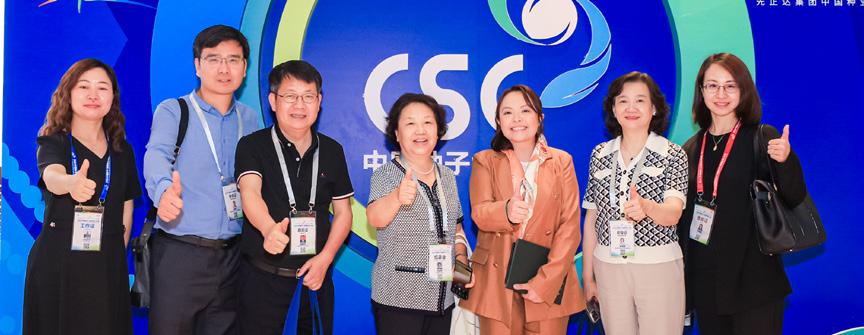
6 − ASIAN SEED IRECTORʼS DESK D


HOT SEAT: APSA's new Executive Director, Francine Sayoc has had a productive, and busy start in her new role; one of the highlights was presenting at the China Seed Congress' Plant Breeding Innovation forum in Sanya in March.
Aligning and relaying with APSA's Chinese partners will be a key priority for the association in 2024 as it prepares for its 30 year celebrations to culminate at the Asian Seed Congress in December.



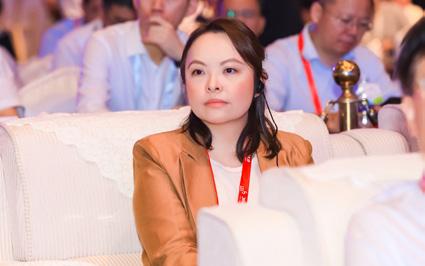

ASIAN SEED − 7
From left to right: Piraorn Suvanbenjakule, Social Scientist, World Vegetable Center, Weeranuch Mhadlhoo, Delphine Larrousse, Regional Director for East and Southeast Asia, World Vegetable Center, Kunaporn Phuntunil, and Pepijn Schreinemachers, Lead Scientist Lead Scientist –Impact Evaluation, World Vegetable Center
From left to right: Assoc. Prof. Tanee Sreewongchai, Dean of Faculty of Agriculture, Kasetsart University, Ms. Weeranuch Mhadlhoo and Mrs. Kunaporn Phuntunil from APSA.
From left to right: Kunaporn Phuntunil, APSA Technical Coordination Manager, Mr. Chaisak Ringluen, Director of Office of Agriculture Regulation, DOA and Weeranuch Mhadlhoo, APSA Partnership and Compliance Manager
Dr. Chongrak Wachrinrat, President of KU (middle) with APSA staff from left to right: Mike Kingpayom, Weeranuch Mhadlhoo, Kunaporn Phuntunil and Komsak Kamjing

Who Owns CRISPR-Cas9?
Ownership of one of today’s most critical technologies is a complicated question. That uncertainty is making next steps difficult for those who want to use CRISPR-Cas9. Marc Zienkiewicz | Seed World
LOGAN SKORI WANTS to use CRISPR technology to launch his business, Calgary’s AgGene, to new heights. But until it’s clearer who exactly owns the rights to the technology, he’s being very cautious.
Right now, AgGene is gearing up to initiate a financing round. A significant factor in that involves securing the licensing rights for a gene editing system that suits the company’s needs. Engaging in negotiations on multiple fronts is a substantial component of this process, Skori says. Terms, limitations, and restrictions are all on the table and subject to discussion when dealing with other companies.
“Navigating the legal landscape is a crucial part of our strategy,” Skori adds. “We’re not just focusing on the immediate deal; we’re also considering the long-term implications, anticipating potential interferences or disputes down the road. It’s a complex task and resolving conflicts of this nature often takes a considerable amount of time.”
Waiting on clarification of CRISPR-Cas9’s patent status isn’t part of AgGene’s plan, Skori says.
CRISPR-Cas9 is a revolutionary

gene-editing technology that allows researchers to cut and modify DNA sequences in living cells. It has the potential to transform medicine, agriculture, biotechnology and many other fields.
At issue is the fact that the patent landscape for CRISPR-Cas9 is likely to remain complicated and dynamic for years to come, as more patent applications are examined, granted, opposed or revoked in different jurisdictions. The outcome of these patent disputes could have a major impact on the innovation and commercialization of CRISPR-Cas9, as
well as on the public interest and social responsibility of using this powerful technology.
The ownership and licensing of this technology is a source of legal disputes and controversies among various parties. Anyone who thought gene editing would level the playing field and open a world of new breeding possibilities free from the high costs of working in the GM space might want to think again, thanks to the complicated world of gene editing patents.
“Unfortunately, we can’t afford to wait idly by for these issues to settle, as doing so would risk falling behind in this dynamic environment,” Skori says. “So, we’re actively moving forward, recognizing the need to make strategic decisions without letting unresolved matters hinder our progress.”
The Race is On
The patent race for CRISPR-Cas9 began in 2012, when two research groups filed their first patent applications for the technology. One group, led by Jennifer Doudna at the University of California, Berkeley (UC Berkeley) and Emmanuelle
8 − ASIAN SEED
CONTENT FROM | SEEDWORLD.COM
Logan Skori, second from right, serves as CEO of Calgary’s AgGene.
Charpentier, then at Umeå University in Sweden, published a paper describing the CRISPRCas9 system and its applications in bacteria.
The other group, led by Feng Zhang at the Broad Institute of MIT and Harvard (the Broad Institute), published a paper demonstrating the use of CRISPR-Cas9 in human and animal cells. Both groups sought to patent the technology in various countries.
Since then, a legal battle has ensued over the intellectual property (IP) rights of CRISPR-Cas9, especially in the United States, where the two groups have been involved in a series of patent interference and opposition proceedings before the U.S. Patent and Trademark Office (USPTO). The main issue is whether the Broad Institute’s patents are valid, or whether they are anticipated or obvious in light of the UC Berkeley group’s earlier publications and applications.
So far, the USPTO has ruled in favor of the Broad Institute. However, the UC Berkeley group has appealed the decisions, and the litigation is still ongoing.
A new player, South Korea’s Toolgen, has also entered the space, complicating things even more.
The patent situation for CRISPRCas9 is also complex and uncertain outside the United States, where different patent offices have reached different conclusions about the validity and scope of the patents. For example, in Europe, the European Patent Office (EPO) has granted patents to both groups but has also revoked some of them due to opposition from third parties.
In China, the China National Intellectual Property Administration has granted patents to both groups but has also rejected some of them due to lack of novelty.
In Japan, the patent office has granted patents to the Broad Institute but has also allowed the UC Berkeley group to amend its claims to cover CRISPR-Cas9 in eukaryotic cells.
In Canada, the patent landscape for CRISPR-Cas9 is still developing, as most of the patent applications filed by the two groups
TOOLGEN DETERMINED TO ‘MAKE ITS MARK’
Toolgen, a South Korean biotechnology company, has entered the CRISPR patent fray, challenging the claims of two prominent research institutions: the Broad Institute of MIT and Harvard, and the University of California, Berkeley (UCB).
Toolgen says that it invented the use of CRISPR in eukaryotic cells, such as animal and plant cells, before the Broad Institute and UCB. Eukaryotic cells are the basis of most living organisms, and the ability to edit their genomes is crucial for the applications of CRISPR. Toolgen says that it filed its patent application in October 2012, while the Broad Institute filed in December 2012, and UCB filed in March 2013.
Yoori Kim, chief legal officer at Toolgen, granted Seed World Canada an interview about the situation (both the Broad Institute and UCB declined to be interviewed, but the former did provide some supplementary information for this story).
“We have strong evidence and arguments to support our claims,” Kim says. “We have been working on this technology for a long time, and we have made significant contributions to the field of gene editing. We believe that we deserve to be recognized and rewarded for our innovation.”
The CRISPR patent dispute is not only a legal battle, but also a scientific and commercial one. The stakes are high as the technology has enormous implications for the future of medicine, agriculture and biotechnology. The outcome of the dispute will affect the access and licensing of CRISPR, as well as the reputation and revenue of the parties involved.
“Toolgen, as a small Korean company, may not be as well-known as the Broad Institute and UCB, but it is determined to make its mark in the history of CRISPR,” Kim says.
In the United States, the Patent Trial and Appeal Board (PTAB) is currently considering who was first to invent the CRISPR-Cas9 gene-editing technology. ToolGen argues that it was the first to use the technology in plants and animals. The PTAB named ToolGen the senior party in the proceedings, which means the burden of proof is on UCB and the Broad Institute to show they developed CRISPR-Cas9 to practice before ToolGen.
In Australia, the Federal Court found that none of the claims in ToolGen’s patent application for platform CRISPR technologies are valid. In Europe, the EPO Opposition Division has revoked a CRISPR patent held by ToolGen.
WHAT NOTABLE COMPANIES HAVE LICENSED CRISPR-CAS9 TO DEVELOP PRODUCTS?
Corteva Agriscience boasts the largest collection of patents related to CRISPR technology in agriculture globally. The company possesses non-exclusive global rights to the Broad Institute’s CRISPR-Cas9 patents specifically for agricultural purposes. Moreover, Corteva holds exclusive global rights to UC Berkeley’s CRISPR-Cas9 technology for major row crops, alongside non-exclusive global rights for all agricultural uses and applications.
Additionally, Corteva has secured a license from ERS Genomics covering agricultural applications in plants. The company also possesses its own patents, including those associated with its CRISPR-Cas waxy corn product. These patents involve collaborations with the Broad Institute of MIT and Harvard, UC Berkeley, and Vilnius University, encompassing various facets of CRISPR-Cas9 technology.
Bayer, BASF and Syngenta all hold non-exclusive rights to the Broad Institute’s CRISPR-Cas9 technology for its application in agriculture. Bayer also possesses non-exclusive rights to ERS Genomics’ CRISPR-Cas9 technology. Bayer has engaged in a collaborative licensing agreement with the startup Pairwise, granting rights to use CRISPR in corn, soybeans, wheat, cotton and canola.
ASIAN SEED − 9

HOW IS CRISPR-CAS9 LICENSED FOR COMMERCIAL VS. NON-COMMERCIAL USE?
The inventors of CRISPR-Cas9 have provided free access to the technology for individuals engaged in non-commercial research. In essence, this offer extends to those conducting fundamental laboratory investigations within public universities.
For the commercialization of products arising from CRISPR-Cas9 applications, the inventors, who hold the foundational patents, have established intermediary entities. These surrogate companies facilitate the licensing of CRISPR-Cas9 patents to global enterprises, enabling them to leverage the technology in the development and commercialization of products.
are still pending examination by the Canadian Intellectual Property Office (CIPO). However, in January 2023, CIPO granted the first Canadian patent for CRISPR-Cas9 to the UC Berkeley group.
The Canadian patent is licensed to ERS Genomics, a company founded by Charpentier to commercialize the technology. According to ERS Genomics, this patent is the first of many that it expects to be granted in Canada, covering various aspects of CRISPR-Cas9.
“Although it took some time to obtain this first Canadian patent, it is one of the most comprehensive and inclusive patents in the ERS portfolio to date. Canada has an impressive history in the life science arena, and we foresee CRISPR playing an important role in the future of Canadian biotech,” said the company’s VP of Intellectual Property and Corporate Development Michael Arciero in a statement.
The granting of this patent could have significant implications for the Canadian biotechnology sector, as it could affect the access and affordability of CRISPR-Cas9 for research and development purposes.
Depending on the terms and conditions of the license agreements, Canadian researchers and companies may have to pay royalties or fees to use the technology or may face legal challenges if they infringe the patent.
Alternatively, they may seek to use other gene-editing technologies that are not covered by the patent, or to challenge the validity or scope of the patent in court.
Navigating the CRISPR Patent Mine Field
Business owners like Skori who are currently shopping around for a gene editing platform find themselves navigating a complicated landscape and trying to decide which direction to take. To obtain a CRISPR patent, the innovation must meet certain criteria: it has to be novel, unique, and serve a specific function, Skori notes. The challenge arises in the fact that the gene editing platform, despite being a physical entity, exists on a microscopic scale, making it difficult to conceptualize, he explains.
“Essentially, what makes it complicated is that it’s a tangible thing, yet it operates at a level that’s hard to grasp,” he says. “At its core, a gene editing platform is delivered as a set of instructions. While it is a physical entity you’re paying for, the process involves receiving the genetic sequence and then incorporating it into the plant.”
“Once activated, it physically generates the gene editing system. So, in a way, you’re acquiring a tangible product, but the means of obtaining it involves receiving and executing instructions within the plant.”
Different tools offer varying functionalities, and companies must evaluate their intentions when choosing a system, Skori says.
“Cost considerations are significant and vary based on the size of the company. Efficiency is crucial too, because saving money might be counterproductive if the chosen system is not efficient, ultimately resulting in wasted time and additional costs,” he adds. SW
10 − ASIAN SEED CONTENT FROM | SEEDWORLD.COM
Yoori Kim is chief legal officer for Toolgen.
All in the Family
One of the biggest defining features of many independent seed companies is their complex, beautiful, sometimes challenging intersection of business and family.
Madeleine Baerg | Seed World
JEFFREY RENK’S great-grandfather, grandfather and granduncle started selling hybrid corn seed in 1934. The business was incorporated as William F. Renk and Sons in 1936, the first family farm corporation in the United States. His dad and uncles took over the late 1960s. In 2000, the next generation of Renks — Jeffrey, brother Brett and their cousin Alex — stepped into leadership of Renk Seed. Today, Renk Seed sells in 11 states but remains family-owned and operated. We sat down with Jeffrey to talk about how his family keeps their family business on course.
SW: What’s beneficial about working in a family business compared to a non-family business?
Jeffrey Renk (JR): Not sure that I’m qualified to answer, I have virtually no experience outside our business. In a recent conversation with a key employee who had extensive experience in the “corporate world” he shared that the biggest benefit was the lack of drama. From my perspective I think the pride and the purpose are huge benefits, at this point in my life it’s about the mental health for me.
SW: Is how you measure success different in a family business?
JR: At the end of the day, every business has to be profitable. In a closely held business our path may not be as linear as that taken by a much larger entity. Ownership, management and a fraction of the labor force are one and the same.

Our group has a managerial bias, and the decision making is focused almost exclusively on our products, customers and processes.
SW: Do you feel a weight of responsibility to previous generations to uphold what they prioritized and their style of leadership/decision making, or do you feel freedom to lead in your personal way?
JR: I feel the presence of my forefathers. I am the fifth generation of the Renk farm, mercifully I can say that it’s not a weight. I remember my great grandfather as a child, and I served on the board of directors at Renk Seed with the two previous generations. I’ll call it a good old fashioned “home schooling”. Our business has thrived in the era of trait technology, so taking what they built and expanding on that certainly helps eliminate any sense of weight or being in the shadow of the previous generation. After the business incorporated in 1936, the
family board of directors became the decision-making body, and that model is how we conduct business today. We each have our areas of expertise and responsibility, but the board is the ultimate arbiter — somewhat different than an organization with a CEO or corporate president. The model is successful because it engages family members who elect to participate, and we are blessed with talent to build a business around.
SW: Given the opportunities and challenges of the seed industry today, how is succession planning today different compared to previous generations?
JR: Our business is organized as a C corporation because of issues unique to the business during the Great Depression. Stock ownership has eased transitions so that we are now the fourth-generation owners of the corporation, a rarity in family businesses. C corporations are not easy to sell, and I picture my grandfather with a wry smile every time the issue arises. In addition, we have resisted the temptation to reorganize Renk Seed. The current structure keeps everyone focused on the task at hand, Renk Seed, without the distraction of maximizing the value of specific assets. The difference today is the complexity of our industry and the very specific skills we think necessary to thrive. The next generation is stepping up and I expect to spend the remaining active years of my career training, mentoring and ultimately enabling ownership for the next generation of the descendants of William F. Renk. SW
ASIAN SEED − 11
Türkiye seed inside and out
The territory covered by APSA's member countries stretches across the extensive regions of Asia and Oceania. However, much of the attention within the seed industry has historically been centered on the "major" countries in South and East Asia, Southeast Asia, and Oceania.
Amidst this focus, the strategic significance of many-up-and coming countries in West and Central Asia has been overlooked as these regions have predominantly functioned as net importers of sowing seed. One notable exception to this trend is Türkiye, a country strategically positioned at the intersection of Europe and Asia. As an up-and-coming member of APSA, Türkiye is actively carving out its role as a significant regional and
global player in the supply of highquality seeds. To delve deeper into this development, we've engaged with key figures from Türkiye's seed industry. Here, Burak Gönen, Chairman of the Board of the Turkish Seed Industry Association (Turkted), and Hacı Ömer Güler, Chairman of the Turkish Seed Union (Turktob) teamed up to provide insights into various facets of Türkiye's burgeoning seed sector.
How is the Turkish seed sector structured, organized? How do your two seed trade associations factor into this greater structure?
Türkiye’s geographical location and climatic diversity make it ideal for agriculture and seed production. With the enactment in 1963 of Seed Law No. 308, a predominantly public system was adopted in seed production and supply that remained in use until 1980. In the 1980s, the Ministry of Agriculture and Forestry made drastic changes in its seed policies. In 1984, two main legislations were put into implementation to facilitate the import and export of seeds by private companies and determination of seed prices in the market. In 1998, Turkey became a member of the International Seed Federation (ISF). With

the enactment of Law No. 5042 on the Protection of Breeder’s Rights on New Plant Varieties in 2004, and Seed Law No. 5553 of 2006, and ratification of UPOV Convention in 2007, the sector gained significant momentum, and significant developments have been seen in the production and trade of seeds since then. With the enactment of Seed Law No. 5553 in 2006, unions were established with the aim of increasing yield and quality in plant production, and strengthening the seed sector.
The Turkish Seed Union is a professional umbrella organization with a legal personality and the status of a public body that has been established by sub-unions in an attempt to encourage cooperation and solidarity among sub-unions and professional solidarity among those involved in the sector, and to perform the tasks provided for by legislation. Sub-unions are professional organizations with a legal personality and the status of a public body that established by plant breeders, sapling producers, seedling producers, ornamental plant producers, seed distributors, seed industrialists and producers, and seed growers. Their purpose is to support the professional activities of their members by ensuring solidarity between real and legal persons operating in the sector, protecting the economic and social rights of those involved in the seed sector, and performing the tasks provided for by legislation.
Burak GÖNEN Chairman of the Board of Turkish Seed Industry Association (TÜRKTED)
Turkish Seed Industry Association, TÜRKTED, was established in 1985. It is a non profit and a non govermnental organisation and the membership is voluntary. Today it has 48 members that are private and public seed companies, producing approximately 70% of the total seed production and 80% of the seed exports. TURKTED has played an iportant role in restructuring of Turkish Seed Sector and harmonisation of the legislation with the EU. TURKTED cooperates with TURKTOB and related sub unions
in the areas of communicating with the Ministry and sector stakeholders as well as organising national and international Congresses and conferences. TURKTED is also a member of ISF and organised ISF WSC in 2009 in Antalya. In 2025, ISF WSC will be organised again by TURKTED and sub union of Seed Industrialists and Producers (TSUAB). TURKTOB and TURKTED will be applying to organise APSA 2026 Seed Congress in 2023 in Antalya.
There is also a public sector in Türkiye. The main body of the public sector in General Directorate of Agricultural Reseach of the Ministry. There are 57 public recearch
institutes, scattered all over Türkiye. The second body is the General Directorate of State Farms which deals with the seed multiplication of varieties that are mainly inbreeding species, where the private sector does not get involved very much. The seed policies of the Ministry is ipmlemented by the General Directorate of Plant Production.
Can you provide an overview of stats and indicators on Turkish seed production and market values?
In Türkiye the term plant propagation material covers technically certifed seeds, seedlings, saplings, and ornemental plnts. A total of
International Trade figures: (Million USD, 2022)
 Hacı Ömer GÜLER Chairman of the Board of Turkish Seed Union (TURKTOB)
Hacı Ömer GÜLER Chairman of the Board of Turkish Seed Union (TURKTOB)
1,361,000 tons of certified seeds were produced in 2023. In addition, 230 million saplings, 6 billion seedlings and 2 billion ornementals were produced in 2023. Total Market value of the market is 750 million USD.
What are your main objectives and strategies for 2024 and beyond?
The common aim is to have a seed sector which is sustainable, internationally compatable and giving a great importance to food security. TURKTOB and TURKTED are both aware that climate changes, biotic and abiotic stresses, EU’s green deal arrangements and microplastics are real challanges for seed sectors as well as risks and insecurity in international trade. TURKTOB and TURKTED has been increasing their efforts in improving our seed sector and its integration with the World seed sectors. In this framework, an International Seed Congress will be held in December 2024 in Türkiye. In addition, ISF WSC held in 2009 will be organised again in 2025. Similarly, 4th International Plant Breeding Congress , held in November in 2022, will be orgnised as 5th International Plant Breeding Congress in 2025. As it can bee seen from Türkiye’s capacity and ability to organise these successfull international organisations it is reasonable to organise one APSA Congress in Turkiye for the first time. TURKTOB and TURKTED are ready and such an important event will be considered by the seed sector as a perfect starting point to increase relations with APSA and Turkish Seed Sectors.
In your opinion what are the biggest challenges for Turkish seed industry this year, and how are you approaching, addressing these?
The COVID 19 epidemic and (other) instabilities in the region has been negatively affecting the seed trade. In order to solve this problem we will be cooperating closely with ISF and APSA. In addition to that, we will help our members to increase their individual efforts, by means of international congresses mentioned above.
ASIAN SEED − 13
Seed Sapling Ornamental Total Exports 232 35 119 386 Imports 169 7 47 223 Export/İmport ratio (%) 137 500 255 173
Considering the China factor
Showcasing Sanya's strength, innovation and development as global seed hub

Anticipation is blossoming for the 29th Asian Seed Congress, jointly hosted by APSA and the China National Seed Trade Association in Sanya, Hainan at the end of this year: 2024 holds special significance as APSA celebrates its 30th anniversary, underscoring its enduring commitment to the seed industry's growth and development. China stands prominently as one of APSA's 'major countries,' boasting substantial representation among its members. In light of these milestones, the CNSTA has graciously provided insights into the dynamic landscape of the China seed industry, outlining the country's pivotal role in shaping regional and global seed markets.
China, with its extensive agricultural history, has witnessed the evolution of seeds from self-multiplication to a thriving seed industry, which now serves as a cornerstone of its agriculture. Emphasizing independent innovation, China's seed sector has entered a new phase of development. Significant advancements in scientific technology include enhancements to the national basic public welfare scientific research system and commercial breeding, fostering deeper collaboration between science and enterprises. Accelerated adoption of biotechnology and information technology has led to breakthroughs in crucial areas such as heterosis utilization, haploid breeding, and cell engineering. Notably, China leads in rice and wheat breeding globally, with numerous high-yield and disease-resistant hybrid corn varieties emerging. Additionally, a wide array of new crop varieties like cabbage, pepper,
and cucumber have been successfully developed and promoted. Improved crop varieties now cover over 96% of agricultural land, with domestically bred varieties comprising more than 95%.
China's seed industry plays a pivotal role in ensuring food security on a global scale: The widespread adoption of superior varieties has significantly contributed to China's consistent food harvests and stable agricultural production. Remarkably, despite possessing only 9% of the world's arable land, China supports 20% of the global population, making substantial strides in addressing the world food crisis. The introduction of Chinese hybrid rice, pioneered by the late Prof. Yuan Longping in 1973, stands as a testament to this commitment. Since then, rice yields per mu have surged by over 20%, earning Chinese hybrid rice the moniker "Oriental magic rice" and igniting its
dissemination worldwide. Currently, Chinese hybrid rice is cultivated or promoted in over 60 countries, including India, Bangladesh, and Brazil. With an overseas planting area exceeding 8 million hectares annually, its yields surpass even those of local varieties. Recognized by the Food and Agriculture Organization of the United Nations as a preferred technology for augmenting food production, hybrid rice exemplifies China's contribution to alleviating food shortages in developing nations. Through the dissemination of high-quality seeds and advanced technologies, China continues to offer solutions to global food security challenges.
Regulatory Reinforcements: In recent years, the advancements in legal frameworks within China's seed industry have been widely acknowledged. The Chinese government attaches great
14 − ASIAN SEED
A demonstration field at the China Seed Congress in Sanya – the 'Silicon Valley of Seeds'. Photo: Supplied

15 − ASIAN SEED
importance to the development of the seed industry and has issued a series of laws, regulations, policies, and measures to provide a solid legal guarantee for the development of the seed industry. Firstly, laws and regulations have been gradually improved. For example, the fourth revision of the Seed Law expanded the protection scope of new varieties, established an essential derived variety system, and encouraged original innovation. The revision of the Measures for the Administration of the Safety Evaluation of Agricultural Genetically Modified Organisms, the Measures for the Examination and Approval of Major Crop Varieties, the Measures for the Administration of the Production and Operation of Crop Seeds, and the Regulations on the Naming of Agricultural Plant Varieties, along with the issuance of approval standards and testing channels for national-level genetically modified soybean and corn varieties, clarified the requirements for the approval procedures for genetically modified varieties. The issuance of Guidelines for the Safety Evaluation of Gene-edited Plants for Agricultural Use (Trial implementation) and the Rules for the Evaluation of Gene-edited Plants for Agricultural Use (Trial implementation) further standardized the safety evaluation management of agricultural
gene-edited plants. Secondly, variety management and market entry are stricter. In terms of major crops such as maize and rice, certification standards are improved in three aspects, such as variety yield, disease resistance, and DNA fingerprinting differential points. The avoidance system of variety approval is also enhanced. In terms of non-major crops, 560 non-compliant varieties such as cucumbers, melons, and sunflowers were canceled. Thirdly, market supervision is more stringent. The government strengthened the connection and cooperation between administrative law enforcement and criminal justice for intellectual property protection, issued the latest judicial interpretation on the trial of infringement cases, and increased the intensity of criminal crackdowns involving illegal seed activities.
China's seed industry remains open to global engagement, with its market value steadily increasing each year, hovering around 120-130 billion yuan. It stands as the world's second-largest seed market after the United States. Crop seed import and export trade has surged, rising from US $133 million in 2000 to US $702 million in 2020, marking a 4.3fold increase. Chinese seeds, including rice, vegetables, flowers, beans, and tubers, are increasingly finding their way


into global markets.
Chinese seed enterprises are actively elevating their presence on the global stage, bolstering research and development investments and accelerating mergers and acquisitions. Currently, two Chinese seed companies, Syngenta Group China and Longping High-tech, rank among the top ten globally. Moreover, under the guidance of national seed associations like CNSTA and CSA, numerous small and medium-sized enterprises are actively engaging in international cooperation and exchanges. China has also been increasingly hosting international seed industry events, fostering exchanges and cooperation between its seed industry and the global market. With these growing interactions, China has emerged as a significant player in the global seed market, evolving alongside the global seed industry.
Furthermore, China's seed industry is committed to sustainable development, prioritizing the harmonious coexistence of economic, social, and environmental aspects. Emphasizing biodiversity conservation, it seeks to maintain ecological balance by responsibly utilizing and safeguarding germplasm resources. The industry is spearheading the adoption of digital agriculture, leveraging technologies such as big data, Internet of Things, and artificial intelligence to enhance germplasm resource monitoring and management, improve seed selection and breeding efficiency, and enable digitalized management and intelligent decisionmaking throughout the seed industry chain. Encouraging industrial green transformation, China aims to achieve sustainable development in the agricultural industry chain by enhancing variety resistance, improving agricultural production efficiency, and reducing agricultural non-point source pollution.
In summary, the development of China's seed industry embodies a narrative of independent innovation, food security assurance, legal empowerment, openness, and sustainable growth. Importantly, this journey is intricately intertwined with the global and Asia-Pacific seed industry. Looking ahead, China's seed industry remains committed to scientific and technological innovation, advancing green practices, fostering international collaboration, and collectively driving the prosperity and harmonized development of the global seed sector. We extend a warm invitation to join us at the Asia Seed Congress in Sanya, China, from December 2-6, 2024.
16 − ASIAN SEED
Sanya shines as China seed capital
APSA advocates for seed R&D at 6th national seed conference

China Seed Association and international relations representative Mrs. Shuping Ma (2nd left) welcomed APSA Executive Committee Members Dr. Yasheng Yang (1st left) and Mrs. Xiaobo Zhu (2nd right), along with APSA Executive Director Francine Sayoc (center) and Technical Program Manager Xiaofeng Li (first right) to the southern Chinese city of Sanya on Hainan Island this week for the #ChinaSeedCongress (March 16-18).
HAINAN: APSA executives advocated for stronger cooperation and investment in plant breeding innovation and seed R&D during China’s annual seed conference mid-March.
More than 2000 delegates from China and abroad partook in the 6th iteration of the China Seed Congress, held 16-20 March.
The APSA delegation included Honorary Life Member, Dr. Mengyu Zhang, Past president, Mr. Zhiping Wang, past EC member Dr. Dehua Ma and Chinese member representatives from around 30 companies including Celestial Seeds, Wuhan Qingfa-hesheng Seed, Shanghai Wells Seed, Winall Hi-Tech Seed, Syngenta Group China, Wuhan Yafei Seed, Huasheng Seed Group, CNUS Vegetable seed, Wenzhou Shenlu Seed, Zhejiang Sky Good Seeds etc.
Dubbed the Nanfan Agricultural Silicon Valley, the city of Sanya is a strategic seed research and production hub on the southern Chinese subtropical island and province of Hainan.
Organized by the China Seed Association (CSA) during its first two years (2018 and 2019) in Beijing, the annual nationallevel conference was cancelled in 2020 due to Covid-19, and re-established in 2021 as an in-person meeting at its new permanent home in Sanya.
The agenda has assembled various provincial and ministerial agricultural officers, academicians, as well as representatives of international associations including APSA, the International Seed Federation (ISF), International Union for the Protection of New Varieties of Plants (UPOV),
and American Seed Trade Association (ASTA) to present everything from germplasm resource protection, and plant breeding to and international cooperation, among others.
Presenting during the Plant Breeding Innovation Round Table sub-forum on March 18, Ms Sayoc advocated for consistent and science-based policies around genome editing in order to encourage further investment in seed breeding and R&D in the Asia-Pacific.
Though the region is one of the most attractive regions in terms of investment and growth potential, particularly for sub-tropical and tropical crop seeds, the APSA director said there is still plenty of room for investment in the discovery of traits and breakthrough innovations, a need that is magnified by a growing threat of pests and diseases.
But there needs to be clarity, consistency and predictability in the regulatory framework to support this investment.
“We want to encourage seed companies to invest in innovations to take advantage of the window of opportunity and the momentum that exists in the APAC market,” she said. “We need innovations here and now to address emerging diseases and increasing environmental pressures experienced by farmers. But for this to happen, regulation must be in tune with the pace of evolution in science, business, and society.”
Some 2,500 participants attended the annual event, which featured 15 symposia, a venue area of about 17,542 square meters and an exhibition area of about 6,400 square meters. Exhibition
areas exhibited achievements made in the seed industry and industrial chain, and products of seed enterprises.
There were both indoor exhibitions and outdoor crop variety displays, with indoor exhibition space exceeding 5,000 square meters and focusing on the development of Sanya’s Yazhou Bay Science and Technology City as well as other achievements and innovations of over 40 featured companies and institutions.
The outdoor crop variety displays were located in the National Modern Agriculture (Seed Industry) Industrial Park in Sanya, and included over 2,200 crop varieties from both China and all around the world.
This event brought together nearly 200 distinguished reporting guests as well as industry elites including ten academicians of the Chinese Academy of Sciences and eight chief scientists of the national industry technology system.
Guests were invited to exchange foundational results achieved by the seed industry revitalization campaign over the past three years, as well as to discuss the future development of the Nanfan Silicon Valley, an agricultural base taking advantage of Hainan's tropical climate to intensively develop new seed varieties.
In addition, there were a variety of related events allowing the public to taste and evaluate many of Hainan’s agricultural products, including chili peppers, corn, squash, tomatoes, and other featured produce varieties, with reports presented at the event’s keynote speech on the 17th.
ASIAN SEED − 17
WIC douses hot trade issues in Christchurch meeting

As a warm-up meeting to the Asian Seed Congress, members of APSA’s Working Group for Integrated Vegetable Seed Companies (WIC) met in Christchurch, New Zealand on 19 November 2023. Their focus was several “burning issues” impacting the production and trade of vegetable seeds in the APAC region.
Firstly, Indian representatives provided a positive update, indicating that their NPPO had relaxed scrutiny of phytosanitary certificates for inbound seed lots. This adjustment came in response to a previously issued mandate for additional declarations and endorsements from the seeds’ country of origin. Recognizing the impracticality of this mandate due to the intricate nature of international seed movements, several years have seen significant delays in seed shipments. In response, members of the WIC, in collaboration with the Federation of Seed Industry of India, engaged in advocacy efforts and outreach with the NPPO, who finally agreed to ease the mandate, contingent upon compliance with established phytosanitary requirements and standards outlined in the respective ISPMs. While members expressed relief that "business can continue as before," caution was advised moving forward. Considering the increased governmental emphasis on biosecurity, it was emphasized that the situation could regress should any phytosanitary threats
be intercepted or detected, irrespective of their direct connection to seeds. To mitigate potential risks, members advocated for sustained awarenessraising efforts and the development of internal guidelines and best practices pertaining to these ISPMs for members' adherence. (Refer to the phyto summary on page 38 for further details).
Discussions ensued regarding the adoption or establishment of an arbitration system for APSA. While ISF had been working towards establishing its centralized arbitration system, there was no unanimous consensus within APSA regarding whether to follow the ISF model or develop its own system. Challenges highlighted included the differing legal and regulatory frameworks across APSA countries, as well as the complexities involved in identifying suitable arbitrators possessing adequate competencies for each jurisdiction. While a few countries, including New Zealand, Argentina, Chile, Germany, and France, have demonstrated success with their individual arbitration systems, industry representatives stressed the necessity for a neutral "arbitration chamber," akin to that of ISF. This chamber currently consists of 13 arbitrators appointed by the ISF board and is actively engaged in capacitybuilding initiatives at the national level. Ongoing discussions indicate a consensus within the WIC group that the ISF system serves as a robust
starting point, given its readily available guidelines published on its website.
The third burning issue discussed pertained to concerns about governments' efforts to implement localized seed production mandates, particularly in Indonesia and Pakistan. Additionally, apprehensions were raised regarding China's requirement for seed export licenses, now extending to stock seed for production. APSA has been collaborating with the Association of Indonesian Horticultural Seed Producers (Hortindo) and the Seed Association of Pakistan (SAP) to provide supporting information and similar experiences from other countries, aiming to persuade the respective governments to adopt more flexible approaches, given the unsuitability of many crop species for local production. Despite sustained dialogue and discussions, significant results have yet to materialize. Suggestions were made for the WIC to adopt a broader approach to this issue, considering potential implications if other countries follow suit. The complexities involved in this endeavor were emphasized, including the necessity to engage governments and consider factors such as infrastructure, intellectual property, and climatic suitability. Regarding the issue with China, it was clarified that the requirement was not new, though there has been stricter enforcement.
Practical actions discussed included
18 − ASIAN SEED
engaging with relevant committees and NSAs during upcoming meetings for better integration and collaboration. One suggestion offered was to initiate a database for the APSA secretariat to track issues by country, facilitating targeted actions and activities, with the Standing Committee of ITQ proposed to lead this effort. It was underscored that government representation is crucial in addressing these issues effectively, and collaboration with NSAs of major seedproducing countries to inform embassies about pertinent issues was emphasized.
Members next discussed issues raised about alleged trade name infringements with the recent implementation of Viet Nam’s variety registration system. Dr. Minh Nguyen of the VNSTA proposed the establishment of an internal trade name database to allow for more effective tracking, calling for support from APSA to develop the capacity and increase engagement with officials to raise awareness. Another option suggested was to engage with Viet Nam’s Plant Variety Protection (PVP) officers, leveraging established connections with MUSP and other side meetings. Cited as a model example was the European PVP registration system, which has clear rules and guidelines for registration, and could
serve as inspiration or a model for Vietnamese officials to establish clear rules for everyone.
An update was provided on the discussion with SIG V&O regarding the formation of a Working Group for Vegetable Seed Production. Previously, there was a proposal for an ISF discussion on seed production groups. There was deliberation on whether to limit the scope to vegetables or broaden it, with the suggestion to start somewhere and clarify the objectives of the ISF group to see alignment with APSA. The objectives of the group were shared with WIC, and it was motioned to move forward with the establishment of the group, although some details need to be worked out. Engagement with non-APSA companies was encouraged, with a focus on sharing information about diseases, detection methods, and disinfection practices, albeit with some concerns about intellectual property rights. There were discussions on protocol sharing and testing procedures, emphasizing the importance of proactive measures and self-regulation by companies. The action plan includes reevaluating goals, creating the group initially for vegetable seed production, and closely integrating it with its ISF counterpart. The Chair
of V&O will review draft objectives/ goals, submit them to WIC and EC for approval, and nominate a technical expert on seed production within WIC to lead the group and facilitate its work with the secretariat.
Next members discussed the Code of Conduct for APSA members. A proposed draft was presented, drawing on discussions within ISF, including the idea of members signing before congress registration as a basis for participation and the procedure for reviewing alleged violations, exclusions, and appeal processes. Despite discussions dating back a decade, there is a renewed commitment to take action, especially considering common infringements alleged to take place during Congress. Drafted by a legal team, the APSA Code of Conduct had had been vetted by EC for general APSA membership, which was subsequently taken up at the AGM (See page 23).
Moreover, the WIC also discussed updates and progress on APSA’s University Connect, Disease Resistant Terminology sub-group and progress with the Seed Innovation Protection Initiative (SIPI). Stand by for more information, and see also Technical Affairs updates on page 28.

Milestones, memories made in Christchurch
28th Asian Seed Congress generates ‘a billion’ for global seed business

New Zealand's 'Garden City' welcomed more than 1,100 seed industry delegates from around the world for the 2023 Asian Seed Congress, which took place at the Ta Pae Convention Center last November 20 to 24.
Co-organized by APSA with the New Zealand Grain and Seed Trade Association (NZGSTA), it was the first time for “Aotearoa” to host Asia-Pacific's premier seed industry meeting in the event’s 28-year history.
The for-members and by-invitation-only event was formally inaugurated during a spectacular ceremony in the exhibition hall of the newly-opened convention center, enlivened with traditional Māori Mihi Whakatau (welcome) and a rousing kapa haka (song and dance) performance by Christchurch South Karamata Intermediate School students.
Presided over by Christchurch Mayor Phil Mauger, Mrs. Charlotte Connoley (NZGSTA), Dr. John Roche (NZ MPI) and Dr. Manish Patel (APSA), the inaugural ceremony was reinforced with detailed host country trade and production statistics, and a timely keynote presentation by Dr. Patel on the role, challenges and opportunities of Artificial Intelligence in modern agriculture.
Thus, the stage was set for a productive week of business meetings, entertainment, trade exhibition, and technical sessions; negotiations abound at the trading tables and meeting rooms, which facilitated an estimated 10,000 meetings to support marketing strategies and revenue turnover for many companies throughout the year.
APSA estimates that as much as US$200 million in new business was generated as a result, and in excess of $1 billion turnover indirectly generated through deals, leads, and partnerships formed.
Beyond trade agreements, significant collaborations were forged, including the signing of Memorandums of Understanding related to agricultural research and development (R&D) and innovation. Furthermore, public-private partnerships were established to advance sustainable technologies, particularly focusing on seed quality aspects. These initiatives are expected to enhance the sustainability of seed companies domestically and regionally, ultimately contributing to global food security and prosperity.
Hosting the event also provided a substantial boost to Christchurch's visitor economy, estimated to be to the tune of $2.5 million, with many international delegates taking the opportunity to explore other parts of New Zealand.
Congress formally concluded with APSA’s Annual General Meeting on November 24 (See next page) though informally culminated with four “Post Congress Tours” that gave delegates a first-hand introduction to New Zealand’s primary agriculture and seed production region centred around the fertile Canterbury plains surrounding Christchurch. (See page 26).
The location of the ASC rotated among APSA member countries yearly in cooperation with a National Organizing Committee (NOC) of the designated host country, which was led that year by the New Zealand Grain and Seed Industry Association (NZGSTA) and Ministry for Primary Industries (MPI). The ASC had also been hosted in Thailand seven times (five times in Bangkok, once in Pattaya, and the inaugural event was in Chiang Mai in 1994); as well as in Manila, the Philippines (three times); Kuala Lumpur, Malaysia (twice) and once each in Brisbane, Australia; Shanghai, Macau, and Kaohsiung in China; Goa, New Delhi, Bangalore, and Hyderabad in India; Chiba and Kobe in Japan; Jakarta and Bali in Indonesia; Seoul and Incheon in South Korea and Ho Chi Minh City, Vietnam.
 Photos courtesy of Tourism New Zealand
Photos courtesy of Tourism New Zealand
Photos courtesy of Tourism New Zealand
Photos courtesy of Tourism New Zealand
Financial discipline, active plans emphasized: AGM
APSA’s 2023 Annual General Meeting was held on the afternoon of 23 November 2023 at the Te Pae Christchurch Convention Center. Chaired by Dr. Manish Patel (APSA President) with Mr. Koh Teck Wah (APSA Vice President) and Mr. Takahiro Ando (APSA Treasurer) as co-chairs, the meeting proceeded after quorum was met with 136 voting representatives. After welcoming members, Dr. Patel reflected on various challenges of the seed industry and the importance of the meeting as a core pillar of APSA’s governance. After members approved the meeting agenda, Dr. Patel gave his annual report, reviewing the Association’s activities, initiatives and key metrics for the year (these have been summarized and consolidated in APSA’s 2023 Year In Review publication, which can be downloaded via apsaseed.org).
Next, APSA Treasurer Takahiro Ando gave a financial summary, reviewing the association’s revenue and expenditures. Though APSA remains in a healthy financial situation, Mr. Ando concluded that the association will continue to sustain efforts to control expenses and emphasize cost savings in response to post-epidemic economic stagnancy, which has resulted in limited cash-flow across various industries, including the seed sector.
The next agenda item of the AGM was the adoption of a Code of Conduct by all APSA members as a condition of membership. Presented by APSA Vice President Koh Teck Wah, the background of the Code of Conduct was explained, originating from the Working Group of Integrated Vegetable Companies (WIC). By extending the COC to general APSA membership, it

aims to strengthen APSA’s capacity in areas such as mission and purpose, research and breeding, seed production, trading activities, and child labor. Following this explanation, a digital vote was called for and the Code of Conduct was approved with an overwhelming simple majority of votes cast.
Following the adoption of the Code of Conduct, the AGM Chair thanked four outgoing members of the APSA Executive Committee, namely Amanda Forster, Francois Burgaud, Nathabhat Soontornpalin, and Wichai Laocharoenpornkul.
Subsequently, the chair explained the process for the EC election, noting that there was only one vacancy and one candidate for election during the AGM. Dr. Sumitra Kantrong, a former EC member, was the sole candidate, meeting the candidacy requirements outlined in the AGM documents. An electronic vote was cast, resulting in the confirmation of Dr. Sumitra Kantrong of Chia Tai to serve on the APSA EC (Seed Enterprise & Thai residence categories) until the AGM of 2026.
The Chair then announced the confirmation of the 2024 Asian Seed Congress, scheduled to take place from 2nd to 6th December 2024 in Sanya City, Hainan Island, China. The 2024 Annual General Meeting is set to be held on Thursday, 5th December 2024 at the Congress venue.
APSA’s President then proceeded to unveil the location for the 2025 Asian Seed Congress: After expressing gratitude to the seed associations of Bangladesh and the Philippines for their respective proposals, Dr. Patel congratulated the National Seed Association of India and the Federation of Seed Industry of India for winning the bid to host the ASC 2024 in Mumbai, India, with the specific date to be announced.
Concluding the AGM, the chair extended gratitude to all members and emphasized APSA's strength in terms of human resources, finances, and membership. Anticipating an active year ahead for APSA in 2024, the meeting was formally closed within the allotted two-hour timeframe. 2023
•
•
•
•
•

ASIAN SEED − 21
APSA Members by Category
399 Seed Enterprises
78 Associate Members
33 Seed Associations
25 Affiliate Members
9 Government Seed Agencies
Top four or major countries territories
India (122 members)
China (95 members) 3. Japan (36 members)
Pakistan (30 members)
2023
1.
2.
4.

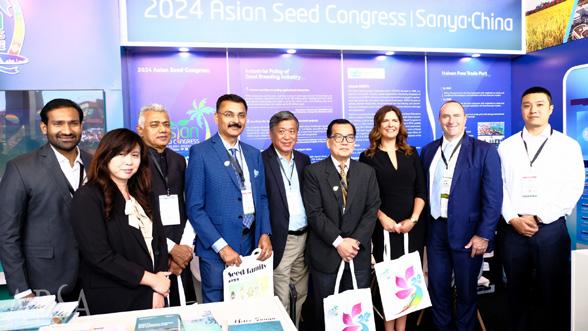
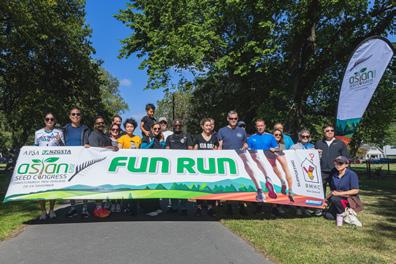



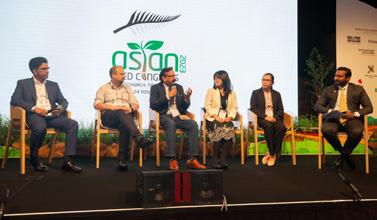
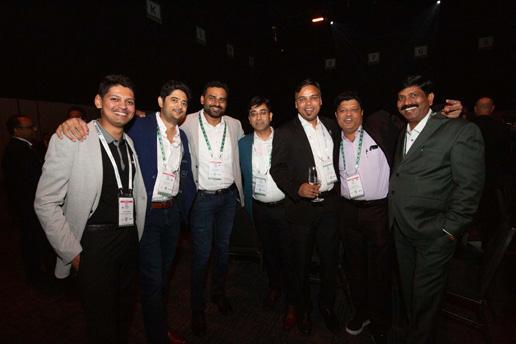






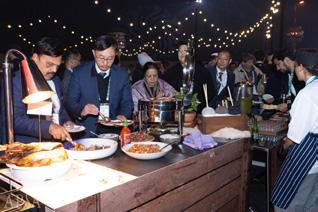
20 - 24 NOVEMBER 2 0 2 3 CHRISTCHURCH, NEW ZEALAND 22 − ASIAN SEED





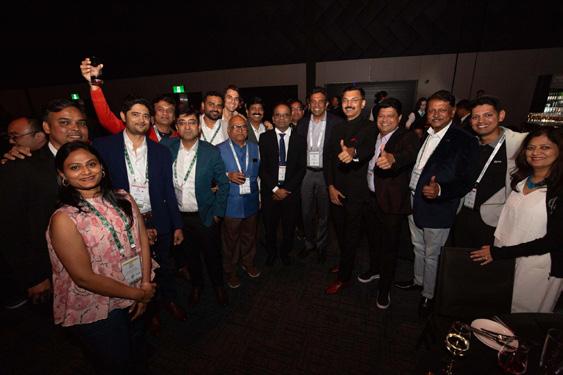




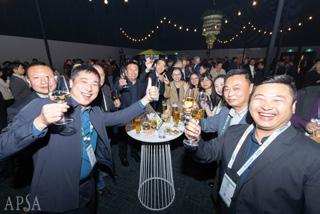

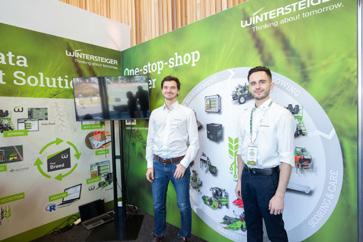



ASIAN SEED − 23
Meet the Asia and Pacific Seed Alliance's
Executive Committee
OFFICE BEARERS


SEED ASSOCIATION
Dr. Manish Patel President
Elected to the EC in 2018, Dr. Patel was nominated as APSA Treasurer in 2019. He holds a PhD and MSc in Plant Breeding & Genetics (Agriculture Science) from Gujarat Agriculture University. He has more than 20 years' experience in seed science and technology, and has been a Governing Council board member of the National Seed Association of India for the last eight years. Since 2000 he has been Executive Director of Incotec India Pvt Ltd., and has previously served as an APSA EC member, and as an Office Bearer, Vice President and Co-chair for the Standing Committee on Seed Technology. He is one of the founding directors of the Gujarat Seed Valley.
SEED ENTERPRISE
Mr. Teck Wah KOH Vice President
Elected in 2019 (2020-2022) Teck Wah Koh is currently the Head of Legal, APAC for Syngenta Asia Pacific Pte Ltd in Singapore, and is responsible for legal affairs of both Syngenta’s Crop Protection and Seeds possesses in APAC. He possesses an LLB from the London School of Economics, University of London. Teck Wah was called to the Malaysian Bar in 1985 and went into private legal practice in Kuala Lumpur, Malaysia. Teck Wah has been working for Syngenta since 2000.

SEED ENTERPRISE
Mr. Takahiro Ando Treasurer
Elected in 2019 (2020-2022), Takahiro is a Japanese national. A seasoned seed industry executive, Mr. Takahiro has more than 25 years’ experience in international seed business, having worked for several subsidiaries of Takii & Company, in Japan, United States, Indonesia and the Netherlands. He is currently the General Manager of International Sales and Marketing Department at Takii.
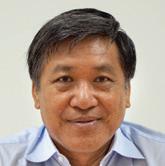
SEED ENTERPRISE
Dr. Chua Kim Aik
Elected in 2019 (2020-2022), Dr. Chua Kim Aik is the founder and CEO of Green World Genetics Sdn Bhd, a fully-integrated (R&D, research, production & distribution) vegetable seed company, headquartered in Malaysia. Dr. Chua holds a PhD in Strategy Management in Global seed industry. In addition, he has forty years’ experience in the seed industry and has worked in many countries.

SEED ENTERPRISE
Mrs. Zhu Xiaobo
Elected in 2018 (2019-2021), Mrs. Xiaobo holds a Bachelor’s Degree in Horticulture from Huazhong Agricultural University, as well as an Associate Degree in vegetable breeding from Jianghan University, China. Currently, she is a General Manager of Wuhan Qingfa-Hesheng Seed Co., Ltd. In addition, she is a member of Field Crops Section Boards, ISF, and Vice President of China Seed Trade Association.

SEED ASSOCIATION
Dr. Yang Yasheng
Vice chairman of Biocentury Transgene (China) Co., Ltd., one of the only integrated vegetable seed companies in Guangdong Province, Dr. Yang is also executive director of China Seed Association and Vice chairman of Cotton Branch, member of the 4th National Crop Variety Approval Committee, chairman of Shenzhen Seed Industry Chamber of Commerce, and one of the leaders of the top ten biological breeding teams in Shenzhen. He founded and was a former president of another leading Chinese seed company, Beijing Origin Seed Co., Ltd.
24 − ASIAN SEED
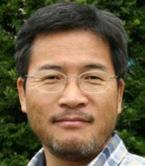
GOVERNMENT
SEED AGENCY
Dr. Kwanghong
Lee
Working as a researcher for new plant variety protection at the Korea Seed & Variety Service (KSVS) since 2007, he has conducted growing tests for barley, wheat, rye, oats, soybean, corn, pea, etc, including for distinctness, uniformity and stability. In addition, he has dedicated experience in the area of seed testing for ISTA certificates. Before joining KSVS, he acquired extensive post-doctoral research experience, including about 4 years in Japan and 3 years in the USA, after obtaining his PhD at The University of Tokyo, Japan.

SEED ENTERPRISE
Mr. Rahul Pagar
Elected during 2022 AGM (2023-2025), Rahul is currently working as Marketing Head - Asia for HM Clause India Pvt. Ltd. He has 15 years of experience in the vegetable seeds industry, having worked in various roles including seed production, supply chain management, quality assurance, exports, sales, and marketing. He has worked in numerous markets, including India, Pakistan, Bangladesh, Myanmar, Thailand, Indonesia, and the Philippines, and has gained significant international exposure to mature seed markets such as the USA and France. He was Chair of APSA WIC Group from 2020 to 2022 and has been appointed to APSA SIG Veg & Orn.

SEED ENTERPRISE
Mr. Farhan Tahir
Elected during 2022 AGM (2023-2025), Farhan is the Director Seed Production and Storage at Haji Sons Group, based in Lahore, Pakistan. He is a passionate agribusiness professional who seeks to improve the accessibility of quality seeds, enhance local hybrid seed production, and improve seed processing and storage conditions in his home country. With competencies in field crops, vegetables and ornamentals, seed technology, social media development for extension and digital marketing development, Mr. Farhan was appointed as Co-Chair of SC Seed Technology.

SEED ENTERPRISE
Dr. MD. Ali Afzal
Elected during 2022 AGM (2023-2025), Dr. Afzal is a missionary scientist and plant breeder by training and profession. He established Krishibid Seed Limited (KSL) as a sister concern of Krishibid Group Bangladesh (KGB), an agro-industry business conglomerate in Bangladesh, for which he is Managing Director. He is also currently the Senior Vice President of Bangladesh Seed Association (BSA) and many other professional organizations. He has been appointed Co-Chair of APSA SIG Field Crops.

SEED ENTERPRISE
Dr. Frisco M. Malabanan
Elected during 2022 AGM (2023-2025), Dr. Malabanan holds a Ph.D. and M.Sc. in Agronomy as well as B.Sc. in Agriculture from the University of the Philippines. He currently is the Advisor for the Hybrid Rice Program in the Department of Agriculture in the Philippines, Chairman of APSA's Special Interest Group (SIG) for Field Crops, and senior technical and promotion consultant of SL Agritech Corporation. In addition, he serves on the executive board of the Philippines Seed Industry Association (PSIA), and is Vice-President of the Board of Directors of the Rice Productivity Advocacy, Inc. (Rice Board).
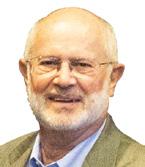
ASSOCIATE MEMBER
Mr. John Mizicko
Elected during 2022 AGM (2023-2025), John is currently Business Development Manager at Eurofins BioDiagnostics Inc (EBDI) and has been with the company since April 2004. Prior to this, he served as President of Eurofins STA Laboratories (ESTA) from May 2010 to September 2015, before that company was merged with Eurofins BioDiagnostics. He has been responsible for all seed health and germination/physical purity testing the company was providing for their global clients, and involved in the vegetable seed industry for nearly 45 years, and is active with the California Seed Association (CSA) and the American Seed Trade Association (ASTA). He has been appointed Co-Chair of SC ITQ.

ASSOCIATE MEMBER
Mr. Nicolas Perrin
Appointed to EC after retirement of Francois B, Nicolas Perrin, serving as the Director for International Affairs at SEMAE, contributes significantly to advancing IP regulations favoring the seed business. Since joining SEMAE in February 2022, he has been actively engaged with APSA, Euroseed, ISF, and ICC, participating in international discussions on plant breeders' rights, farmers' rights, ABS issues, and access and benefit sharing.
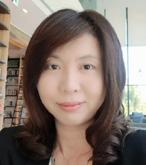
SEED ENTERPRISE
Ms. Chia-Hui (Linda) Chang
Elected during 2022 AGM (2023-2025), Linda heads the R&D Department at Kaohsiungheadquartered "Known-You Seed". She is highly credited for her expertise in overseeing and coordinating teamwork between different research units. For more than 19 years, she has been engaging and delivering innovative technology solutions in the agricultural sector, and has held various leadership roles across research and seed production, while being a council member of the Taiwan Seed Trade Association (TSTA). She has also been appointed as co-chair of SIG Veg & Orn.

SEED ENTERPRISE
Dr. Sumitra Kantrong
Re-elected in 2023 AGM (2024-2026), Dr. Sumitra is Assistant VP at integrated Thai agriculture company Chia Tai, and Chairs APSA’s Working Group of Integrated Vegetable Companies. Dr. Sumitra holds a PhD (Science of Life Environment and Conservation) from Kagoshima University in Japan, with M. Sc. (Plant Virology) from Saga University, Japan and B. Sc. (Plant Pathology) from Khon Kaen University in Thailand. Dr. Sumitra is a highly accomplished executive in the vegetable seeds industry with a strong research, lab, and quality assurance background.
ASIAN SEED − 25
The allure of ‘Pure New Zealand’
While meetings, technical sessions, and cultural entertainment are all popular aspects of the Asian Seed Congress, perhaps the biggest draw for many of this year’s ASC delegates was the opportunity to visit seed production and processing sites, and thus find out firsthand why the host country stands out as a formidable player in the global seed industry. The 28th Asian Seed Congress featured four Post Congress Tours, all of which were fully booked only days after announcing the respective programs earlier in the year
Dairy, Wool & Wine
In addition to vegetable and forage seeds, New Zealand agriculture is renowned for its sheep, cattle, and vineyard acreages. Therefore, one of the tours took delegates to the iconic dairy and wine country of
Discover North Canterbury Tour
North Canterbury. Here, they visited a large, irrigated dairy and pasture grazing farm before venturing to the Waipara Valley wine region nestled in the lee of the Teviotdale hills. Known for its stony limestone terrain, the valley is conducive to growing Pinot
Noir, Chardonnay, and award-winning aromatics like zesty Riesling and delicate Pinot Gris. Benefiting from protection against cool ocean winds while remaining open to warm Nor’ Wester winds, the valley provides ideal conditions for grape ripening.

Another tour group explored Hororata, renowned for its fertile farming district, and Windwhistle, where they visited Middle Rock Station along the braided Rakaia River. Hosts Bruce and Lyn
provided insights into the farm's history before leading a tour of Lake Coleridge high country farm nestled at the foot of the Southern Alps. With over 7,000 sheep producing fine wool
Canterbury High Country Station Tour
and lamb for international markets, delegates enjoyed panoramic views of the Mt Hutt range, seasonal farming activities, sheepdog mustering, and spring lambs.

Processing Perfection
A third tour brought delegates to Barenbrug New Zealand’s Processing and Distribution Centre in Rolleston, a crucial component of the company's operations handling approximately 80% of their seed.
This world-class facility facilitates various seed treatments, mixing, bagging, and distribution, boasting a storage capacity of over 3,500 tons. Delegates were particularly impressed by Barenbrug’s new seed coating line, commissioned by
GRAINTECH. Additionally, they noted other key features such as access platforms, pendulum elevators, dust collection systems, and patented equipment like the 800s Batch Coater and fluidized bed dryer, which enhance efficiency and sustainability.
26 − ASIAN SEED

Integrated Value
The fourth group embarked on a comprehensive journey to sample core aspects of New Zealand’s entire seed production chain, with several stops to the south of Christchurch. Their itinerary commenced with a visit to Plant & Food Research's Lincoln site, a Crown Research Institute, where delegates engaged with institute experts, who discussed ongoing research in laboratories and across their 176-hectare arable research farm. The focus was on developing new lines of cereals, forage, brassica, and other vegetables that are pest-resistant, high-yielding, nutritionally enhanced, and climateresilient, which not only address the needs of New Zealand farmers but those across the globe.
Next, the group was welcomed by David Birkett of Birkett Farming, who showcased his paddocks and highlighted factors contributing to New Zealand’s productivity. These include rich soils and easy access to irrigation water from local bores
Canterbury Seed Tour
or irrigation schemes sourced from the Rakaia and Waimakariri rivers. David explained that seed paddocks undergo up to eight rotations, with an average crop cycle of about seven years, allowing soil ample time for recovery and restoration between wheat, ryegrass, clover, malting barley, peas, beans, and other brassica species.
David also provided insights into farm sizes in the Ellesmere area, typically ranging from 175 to 200 hectares, and those south of the Rakaia River, which are between 200 to 500 hectares. Farms are systematically planned and managed to optimize productivity and quality. An example of this is the Seed Crop Isolation Distance (SCID) scheme, which ensures varietal purity and mitigates cross-contamination.
With ideal agronomic conditions and a stable, mild climate, the Canterbury plains contend as an advantageous breeding and seed multiplication base, filling offseason gaps for northern hemisphere seed
needs. Furthermore, the pooling of seed processing services, capacities, and technologies enables smaller and medium-scale growers and distributors to produce and supply quality seeds.
This was exemplified by a visit to the South Island Seed Dressing and Storage Company, a thirdgeneration family-owned business. The company offers one-stop seed processing services, utilizing stateof-the-art technology for testing, storage, drying, cleaning, sorting, grading, application, packaging, and transportation. Approximately 80% of their processed seeds are destined for export markets across the globe, specializing in export-quality seed processing of grasses, pulses, cereals, clovers, oilseeds, brassicas, and other vegetable crops.
And thus concludes why and how New Zealand not only leads regionally, but also serves as a global model for seed research, development, production, processing, and distribution.

ASIAN SEED − 27
Seed Coating Technology Tour
Updates from APSA Technical Affairs
Standing Committee on Plant Breeding Innovations
We kick off the new year with the establishment of the Standing Committee on Plant Breeding Innovation (SC PBI), aimed at promoting scientific innovations in plant breeding and advocating for science-based policies on new breeding methods across the Asia Pacific Region. Comprising 15 members and 3 observers, the committee convened its first meeting on January 17th under the leadership of Co-Chair Dr. Yang
Yasheng (China Seed Association). During this session, Mr. Michael Leader (Bayer South East Asia) was nominated as the Chair of APSA SC PBI. The committee anticipates more activities in the future. Additionally, members have actively participated in providing informed commentary on the consultation regarding the regulatory framework for genomeedited crops led by the Singapore Food Agency.


Standing Committee on Intellectual Property Rights and Biodiversity


The committee eagerly anticipates its inaugural meeting in early February, expecting compelling topics for the APSA Seed Technology Webinar, recognized as the most popular webinar series in APSA, and increased engagement with the APSA Seed Academy
The committee warmly welcomed Dr. Kwang Hong Lee as the new Co-Chair, appointed from the APSA Executive Committee, and Dr. Ming-Chung Liu of Taiwan Seed Improvement and Propagation Station (TSIPS) as a new committee member, adding valuable expertise
to the group. Their first meeting in January and the second meeting in March centered on preparations for APSA Seed Association meeting on April 23 and the inaugural APSA IPR & Biodiversity Consultation, scheduled for April 24-25, 2024, in Bangkok.
Standing Committee on Seed Technology
program. This year promises innovative discussions within the webinar, with a commitment to enhancing the Seed Academy for dynamic participation. Stay tuned for updates and announcements on these initiatives.
Standing Committee on International Trade and Quarantine


The committee convened its first meeting of the year on January 24th to primarily discuss preparations for the 10th APSA Phytosanitary Expert Consultation. Organized in collaboration with the Philippine Seed Industry Association (PSIA) and co-hosted by the Bureau of Plant Industry, Department of Agriculture, Philippines, the consultation aimed to strengthen public-private partnerships addressing seed movement concerns across borders. The event


featured discussions over two days and included visits to the seed health testing laboratories of the Philippines NPPO and the Bureau of Plant Industry in Los Baños, followed by a day-long program. With participation from government officials and stakeholders from APSA and seed associations, the consultation underscored the commitment to enhance seed movement in the Asia-Pacific region through collaboration. The event concluded successfully.
28 − ASIAN SEED
Chair: Dr Mary Ann Sayoc Co-Chair: Mr. John Mizicko
Chair: Dr. Sandeep Jadli Co-Chair: Mr. Farhan Tahir
SC PBI
Chair: Vacant Co-Chair: Dr. Kwanghong Lee
Chair: Mr Michael Leader Co-Chair: Dr Yang Yasheng
SC IPR & Bio
SC Seed Tech
SC ITQ
In the inaugural meeting of APSA SIG Field Crops, Mr. Ravi Kumar from ACSEN Agriscience was warmly welcomed as a valuable addition. The committee actively seeks additional APSA members committed to enhancing the APAC seed sector, inviting likeminded individuals to join their collective efforts. With a focus
Special Interest Groups on Field Crops
on collaboration, they aim for a diverse membership to drive advancements in field crops. Productive deliberations led to plans for organizing a study tour and conducting a market size survey, fostering knowledge exchange within APSA, showcasing their dedication to inclusive representation and industry progress.
SIG Field Crops


Special Interest Group on Vegetables and Ornamentals (SIG Veg & Orn)
SIG Vegetables & Ornamentals


The Working Group of Integrated Vegetable Seed Companies (WIC) Warmly welcoming new WIC members, Dr. Arun Joshi from Rijk Zwaan and Mr. Atul Bhagat of Nunhems India, the committee has decided on two physical meetings annually. Members have marked their calendars for the first meeting scheduled on April 22, 2024, in Bangkok, Thailand. Plans are underway as WIC members prepare for their trips to Bangkok in the third week of April. This month, the WIC Chair and Co-Chair convened to shape the agenda, ensuring it addresses pertinent topics in the APAC regions and fosters fruitful discussions on various WIC initiatives, including the University Connect Program, Disease Resistance Terminology, and Seed
In late January, the committee convened, focusing on updates from the R&D Advisory group, WIC, and DRT sub-groups under SIG V&O. The meeting facilitated collaboration among these segments, with discussions enriching the agenda of SIG V&O. Deliberations included strategic planning for an upcoming study tour, aiming to craft an
informative itinerary aligned with SIG V&O's objectives. This initiative proposes a comprehensive exploration of vegetable cultivation, emphasizing urban and high-tech farming in Singapore and Malaysia. Stay tuned for updates on this promising initiative within the SIG V&O community.
Innovation and Protection Initiative (SIPI).
The DRT Working Group The bitter gourd powdery mildew subgroup's inaugural meeting on January 18th addressed distributing bitter gourd seeds internationally and testing protocol reviews, with Acsen Agriscience committed to facilitating seed distribution to member companies worldwide. Ongoing efforts include members of the Bitter Gourd Subgroup submitting yearly status reports to India's National Biodiversity Authority. Meanwhile, seed multiplication for the Watermelon Fusarium Wilt Subgroup in Thailand progresses in the field are almost finished.
The R&D Advisory Group During the first meeting, the committee discussed preparations for the physical APSA Asian Solanaceous Cucurbit Roundtable (ASCRT) featuring 2.5 days of extensive presentations on Solanaceae and Cucurbitaceae crops, with a half-day field visit. They also discussed plans for a webinar series of APSA Large Seed Vegetables & Brassicaceae Okra (LSVBO) Thank God It’s Friday (TGIF) 2024. Lastly, the APSA-NSTDA-KMITL collaborative project update titled "Identification of single nucleotide polymorphism (SNP) markers associated with resistance to pepper yellow leaf curl virus in chili pepper" marks the project's entry into its second year of implementation.

29 − ASIAN SEED
Chair: Dr Chua Kim Aik Co-Chair: Dr. MD. Ali Afzal
Chair: Mr Rahul Pagar Co-Chair: Ms. Linda Chang
New committee members and observers

Mr. Nicolas Perrin
Committee: SC IPR & Biodiversity / SC ITQ
Company: SEMAE
Country/Region: France
Nicolas Perrin, serving as the Director for International Affairs at SEMAE, contributes significantly to advancing IP regulations favoring the seed business. Since joining SEMAE in February 2022, he has been actively engaged with APSA, Euroseed, ISF, and ICC, participating in international discussions on plant breeders' rights, farmers' rights, ABS issues, and access and benefit sharing. With a focus on advocating for favorable regulations and supporting breeders' activities, Nicolas collaborates with national institutions and regional associations like AFSTA. Committed to collective efforts, he aims to defend seed industry interests globally by implementing strategic plans and fostering collaboration among stakeholders.
Dr. Kanokwan (May) Chodchoey
Committee: SC IPR & Biodiversity / SC ITQ
Company: East-West Seed International Limited
Country/Region: Thailand
Dr. May Chodchoey, a seasoned professional in the agricultural sector, boasts over a decade of extensive experience across executive leadership, public affairs, and quality management domains. Having served as the former Executive Director of APSA and currently occupying the role of Group Head of Public Affairs at East West Seed (International) Ltd., Dr. May Chodchoey is renowned for her adeptness in crafting global strategies, navigating regulatory landscapes, and fostering partnerships with key stakeholders including APSA, ISF, governments, NGOs, and international organizations. With a Ph.D. in Biotechnology and a B.Sc. in the same field, Dr. May Chodchoey's expertise extends to quality assurance and laboratory management, particularly evident from her tenure at Monsanto Limited Thailand, where she oversaw quality control across Asia Pacific.

Dr. Raghavan Sampathkumar
Committee: SC ITQ (observer)
Company: Federation of Seed Industry of India (FSII)
Country/Region: India

Raghavan Sampathkumar is a well-versed agribusiness professional with 20+ years of experience working across the Asia Pacific region in diverse sectors including agri-inputs, protein (animal & plant), value chain financing, international trade, and agri-biotechnology. He has a Bachelors in Agriculture and MBA from Tamil Nadu Agricultural University (TNAU), Coimbatore and earned his Masters in Agribusiness from University of Adelaide, Australia. Prior to joining FSII, Raghavan was the Head – Policy Advocacy & External Affairs, at Samunnati and has also worked with reputed industry associations viz., CropLife Asia, Singapore, as Director –Stewardship, and CLFMA of India, Mumbai as Executive Director.
Dr. Ming-Chung Liu
Committee: SC IPR & Biodiversity
Company: Taiwan Seed Improvement and Propagation Station (TSIPS)
Country/Region: Chinese Taipei
Ming-Chung Liu is a senior researcher specializing in new plant variety protection and ornamental plant breeding at Taiwan Seed Improvement and Propagation Station (TSIPS) since 2004. With extensive experience in conducting growing tests for various ornamental crops, he has developed and revised national test guidelines. Ming-Chung has also played a pivotal role in international technical cooperation on plant variety protection, facilitating agreements with CPVO, Japan, Vietnam, and other nations. Holding a Doctorate and Masters in Horticulture from National Taiwan University, he has held various positions at TSIPS, including Deputy Director. Ming-Chung's contributions extend to APSA's SC IPR & Biodiversity committee, where he aims to promote plant variety protection and facilitate regional cooperation.
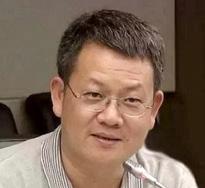
Dr. Yang Yasheng
Committee: SC Plant Breeding Innovation - Co Chair
Company: China Seed Association
Country/Region: China

Dr. Yang Yasheng is an Executive Committee member of the Asia and Pacific Seed Association, director of the China Seed Association, president of the Shenzhen Seed Chamber of Commerce and also the vice chairman of Bio-Century. He represents the seed industry to provide policy suggestions to government departments, reflects industry demands, organizes and carries out academic exchanges between industries, and participates in the formulation of modern biotechnology-related systems and rules, He has led or presided over multiple major scientific research and industrialization projects.
30 − ASIAN SEED

Ms. Patcharin Taridno
Committee: SC Seed Technology (observer)
Company: Rung Rueng Consulting Co., Ltd. / Rhino
Country/Region: Thailand
Patcharin Taridno, is an experienced professional with over 15 years of expertise in research and development, particularly in seed technology. Since 2008, she has been instrumental in overseeing the harmonization of know-how, techniques, and products from various international sources to develop new research projects and products tailored to the needs of Asian countries. Currently serving as the Industrial Analytic Director at Rhino Research in Bangkok, Thailand, Ann excels in providing technical guidance, identifying business opportunities, and implementing new systems to drive efficiency in seed technology. With a Master's degree in Agriculture from Kasetsart University, Ann's dedication, technical acumen, and project management skills make her a valuable asset to the Asian seed industry.
Dr. Arun Joshi
Committee: SIG Veg & Orn (WIC)
Company: Rijk Zwaan India Seeds Private Limited
Country/Region: India
Arun Joshi works as a Managing Director at Rijk Zwaan India (RZI) Seeds Pvt. Ltd, Bangalore having about 22 years of extensive experience in research, breeding and management within the vegetable seed sector. I am holding a Ph.D. degree in Horticulture (Vegetable Breeding) from Horticulture & Forestry University, Solan, India. Achievement in career progression: Commenced as a researcher at a Public Agriculture University, advanced to a professional tomato breeder at Syngenta India Ltd., subsequently spearheaded the Research & Development division for vegetables at Indo-American Hybrid Seeds, finally assuming management role at Rijk Zwaan India Seeds Pvt. Ltd in April 2017.

Mr. Atul Bhagat
Committee: SIG Veg & Orn (WIC)
Company: Nunhems India Pvt. Ltd.
Country/Region: India

Atul Bhagat is an experienced professional with a strong academic foundation and experience in vegetable seed industry. He earned his Bachelor of Science in Agriculture from GBPUA&T, a pioneering agricultural University at Pantnagar, India. He further honed his expertise by attaining an MBA from CABM, Pantnagar. With a career spanning 22 years, Atul started his career with Indofil Chemicals and then joined Nunhems. He has then navigated through various regional sales and leadership roles within Nunhems. Presently, he is working at Nunhems (BASF) as Country Manager for South & South East Asian countries and has held roles of Key Account Management, Produce Chain (Downstream) Management, Strategic Planning and Institutional sales & marketing in vegetable seed industry.
Mr. Ravi Kumar
Committee: SIG Field Crops
Company: Acsen Agriscience
Country/Region: India
Ravi Kumar is an experienced professional with over 24 years of diverse experience in leadership, P&L management, strategic planning, sales & marketing and product development within the agricultural industry. Having held prominent roles such as current one as Chief Operating Officer (COO) at ACSEN Agriscience Pvt. Ltd. and Business Head- South Asia for Veg Seeds at Syngenta, he has demonstrated expertise in strategizing, creating Organisation Structures from scratch, developing commercial teams, expanding into new markets, and driving profitable business growth. With a strong academic background including an MBA in Marketing & HR, Ravi combines strategic acumen with hands-on experience, leading successful initiatives and projects across Asia-Pacific. He is known for his effective leadership style, stakeholder management skills, and commitment to fostering team cohesion and professional development.

Dr. Chee Hark Harn
Committee: SC Plant Breeding Innovation
Company: ToolGen
Country/Region: Korea

Chee Hark Harn is a seasoned professional in biotechnology, currently serving as Director of the Seed R&BD Division at ToolGen Inc., a leading Korean biotech company specializing in genome editing. With a diverse educational background and extensive work experience across prestigious institutions and companies in Korea and the United States, Chee oversees projects developing innovative agricultural solutions like herbicide-tolerant corn and soybeans, high oleic acid soybeans, drought-tolerant peppers, and improved potato varieties. He holds key roles in various scientific societies and governmental committees, including regulating genome editing in Korea. Passionate about advancing regulatory frameworks for genome-edited crops, Chee actively engages in discussions to harmonize international regulations, particularly in the Asia-Pacific region.
ASIAN SEED − 31
Mr. Michael Leader - Chair
Committee: SC Plant Breeding Innovation
Company: Bayer (South East Asia) Pte Ltd.
Country/Region: Singapore
Michael Leader is Head of Regulatory Scientific Affairs – Asia for Bayer CropScience. In this role he is responsible for driving engagement with key scientific stakeholders to advance science-based regulation of agricultural innovations in the Asia region and to make Bayer a credible scientific partner of choice. This includes significant efforts relating to plant breeding innovations, where he has presented at scientific conferences on developments in this area and on the seed industry’s position on the regulation of these new technologies. He is currently Chair of CropLife Asia’s gene editing taskforce and has been a previous Board member and President of the Australian Seed Federation. In his previous role as Bayer’s APAC seed regulatory lead, he has chaired APSA’s ITQ Standing Committee as well as the International Seed Federation’s phytosanitary committee. He has also worked in government biotechnology and quarantine regulatory agencies in Australia, as well as in international biotechnology industry associations. He has a Law Degree and a Science (First Class Honors) Degree in molecular biology from the Australian National University.
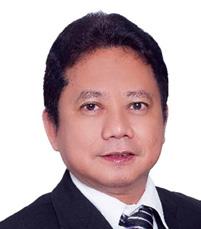
Dr. Gabriel Ortega Romero
Committee: SC Plant Breeding Innovation
Company: Philippine Seed Industry Association
Country/Region: Philippines

Dr. Gabriel Ortega Romero currently serves as the Executive Director of The Philippine Seed Industry Association (PSIA), drawing on his extensive experience in regulatory science, crop biotechnology, and plant breeding innovations. Previously, he held the role of Senior Regulatory & Scientific Affairs Lead at Monsanto Philippines for a decade, contributing significantly to agricultural advancements. With a Ph.D. in Genetics from the University of California, Davis, USA, an M.Phil. in Plant Breeding from the University of Cambridge, UK, and a B.S. in Biology from the University of the Philippines at Los Baños, Dr. Romero brings a wealth of academic and practical knowledge to his current leadership position. Recognized with prestigious awards such as The Outstanding Young Men (TOYM), Outstanding Young Scientist from the National Academy of Science and Technology, and Faces of Biotechnology from the Department of Agriculture, he continues to make impactful contributions to the agricultural and biotechnology sectors.
Dr. Derek W. Barchenger
Committee: SC Plant Breeding Innovation
Company: World Vegetable Center
Country/Region: Chinese Taipei
Dr. Derek W. Barchenger, Ph.D., is an esteemed scientist leading innovative plant breeding efforts at the World Vegetable Center in Tainan. With a doctorate in Plant and Environmental Sciences, Derek specializes in pepper breeding, focusing on enhancing traits like disease resistance and working in male sterility systems. At the Center, he spearheads groundbreaking projects, including the development of heat-tolerant pepper varieties and the evaluation of chili lines for resistance to viral diseases. His contributions to the field are evidenced by numerous peerreviewed publications and influential roles in global initiatives such as the Crop Trust. Derek's leadership extends beyond research, as he chairs committees and coordinates international training courses, driving forward plant breeding innovations that address pressing agricultural challenges.

Mr. Liu Shande
Committee: SC Plant Breeding Innovation
Company: WUHAN COMEGA SEED CO.,LTD
Country/Region: China

Liu Shande, a senior agronomist and CEO of Wuhan Comega Seed Co., Ltd, boasts over 25 years of experience in hybrid rice seed breeding and international trade. With a Master's degree in Plant Breeding Seed Science and Technology from the Agriculture University of Poland and a Bachelor's degree in Crop Cultivation and Farming System from Huazhong Agricultural University, Liu has excelled in various managerial roles, including General Manager and Vice-General Manager at Hubei Provincial Seed Group Co., Ltd. His expertise extends to understanding the global seed market's dynamics, as evidenced by his leadership in achieving top market positions for seed exports both in China and abroad. Liu has published 20 academic papers and received awards at provincial and ministerial levels for his contributions to science and technology. Notably, he has shared his knowledge through lectures and speeches at international conferences, contributing significantly to the advancement of hybrid rice and GMO technology. Additionally, Liu has played a pivotal role in selecting and breeding numerous hybrid rice varieties and male sterile lines, underscoring his commitment to agricultural innovation.
32 − ASIAN SEED
Dr. Girigowda Chaluvaraju
Committee: SIG Veg & Orn (R&D AG)
Company: Nunhems India Pvt. Ltd.
Country/Region: India

Dr. Girigowda Chaluvaraju, MSc., MPhil., Ph.D., is a distinguished figure in the agri input industry, renowned for his exceptional leadership and operational expertise within regional and global research and development and supply chain teams. With two decades of experience in the seed industry coupled with six years of academic research and project management, he boasts a remarkable blend of industry and scholarly acumen. Dr. Chaluvaraju's illustrious career includes key roles such as the APAC Head of Research and Development at BASF, where he crafted, executed R&D strategies, and led cross-functional teams across India and China. He has steered global seed production as the Global Head of Production at BASF/ Bayer, overseeing expansive operations across various regions. He had experience of leading vegetable seeds quality assurance team and building seed health facilities and capabilities. With a background in plant science, including a Ph.D. in Applied Botany, Dr. Chaluvaraju stands as a beacon of expertise, seamlessly combining his scientific knowledge with business acumen. His multifaceted interests, including travel, mentoring, and literature, further exemplify his dynamic persona.

Mr. Chinna Babu Muvva
Committee: SC Plant Breeding Innovation
Company: Enza Zaden Asia Sdn Bhd
Country/Region: Malaysia
Chinna Babu Muvva, a seasoned Product Development, Research, and Technology Team Leader, currently serves as the Regional Director of Research & Development in Asia at ENZA ZADEN ASIA in Malaysia. With over two decades of experience, he specializes in driving plant breeding innovations to meet the evolving demands of the Asian market. Skilled in speed breeding principles, Chinna Babu has led numerous successful projects focused on developing novel varieties, particularly in hot pepper breeding. His expertise extends to optimizing crop breeding activities in various vegetable crops. With a Master's degree in Agriculture specialized in Genetics and Plant Breeding, he has received recognitions for his contributions and the ICAR Junior Research Fellowship. Through his leadership, strategic planning, and proficiency in molecular breeding methodologies, Chinna Babu is dedicated to advancing agricultural research and spearheading innovative solutions to enhance vegetable crop productivity and quality.
Mr. Marc Cool
Committee: SC Plant Breeding Innovation
Company: Corteva Agriscience
Country/Region: United States
Marc Cool, a fifth-generation seedsman, began his journey in the corn seed industry on his grandfather's farm in Wisconsin. After obtaining a Master's Degree in Plant Breeding and Plant Pathology from the Agricultural University of Wageningen in the Netherlands, Marc embarked on a diverse career spanning more than three decades. He ventured from the alfalfa seed industry in California to the turf and forage grass industry in Oregon, then served as a General Manager for an organic vegetable seed company under the Mars Corporation. Following four years in China with DuPont Pioneer, Marc returned to the US, joining Corteva AgriscienceTM Public Affairs group. In this role, he leads global seed advocacy policy development, supports the Seed Portfolio’s, and engages with global trade associations. Marc is active in various Seed Trade Associations around the world, including as Board member of the International Seed Federation, contributing significantly to legislative and regulatory affairs shaping the global seed industry.

Mrs. Weihong (Alison) Tian
Committee: SC Plant Breeding Innovation
Company: China National Seed Trade Association
Country/Region: China

Ms. Weihong (Alison)Tian, Senior Economist, is currently Secretary General of China National Seed Trade Association (CNSTA). She holds MBA in Agri-Food at University of Guelph in Canada and Econ Bachelor at DUFE in China. She once worked in China National Seed Group and Hong Kong China Resources Group, etc. in charge of international business. She is now in charge of making strategic planning and daily management and operation of the secretariat. She has been involved in the research of international trade and regulation and policy of China seed industry. Under her leadership, CNSTA has organized many international forums and seminars on IP protection, plant breeding innovation, genetic resource protection and international trade and cooperation, and actively promoted international cooperation and exchanges of China's seed industry. She is currently an active member of ISF CG Phytosanitary, CG Genetic Resources and CG Arbitration. She was a member of ISF Phytosanitary Committee and PBI WG in 2018-2021, a member of the V & O Crop Section Committee in 2012-2018.
ASIAN SEED − 33

Mr. Madoka Koshibe
Committee: SC Plant Breeding Innovation
Company: Vilmorin-Mikado Co., Ltd.
Country/Region: Japan
Madoka Koshibe, currently serving as the President (Chairman of the Board) of VilmorinMikado Company (Japan) Limited, brings over 37 years of international experience in the seed industry. Fluent in English and Japanese, he has effectively managed seed production projects in collaboration with government agencies and international organizations like MAFF, JICA, and UPOV. Notably, Koshibe has served as the APSA Past President and continues to contribute significantly to the global seed industry through his expertise in regulatory affairs, trade negotiations, and international cooperation.
Dr. Ratna Kumria
Committee: SC Plant Breeding Innovation
Company: Federation of Seed Industry of India (FSII)
Country/Region: India
Dr Kumria manages the Alliance for Agri Innovation (AAI), a technology-focussed special interest group of Federation of Seed Industry of India (FSII) and its relations with stakeholders related to Agri Biotech especially in Government and Regulatory Agencies. She keeps continuous track of latest scientific and policy developments and biotech advocacy. Dr Kumria has a Ph.D in genetics from University of Delhi, South Campus. She did her post-doctoral research at ICGEB-New Delhi and Donald Danforth Centre, Saint Louis, Missouri. Previously, she has worked with DuPont Pioneer at DuPont Knowledge Centre for trait discovery. She led a team responsible for characterizing a transgene undergoing de-regulation and a high throughput evaluation platform for lead identification for maize at DuPont Pioneer.

Dr. Jai Singh
Committee: SC Plant Breeding Innovation
Company: Sakata Seed India Pvt Ltd
Country/Region: India
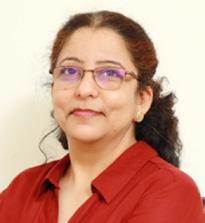
Dr. Jai Singh, currently based in Bangalore, Karnataka, India, boasts a rich professional journey spanning over three decades. His expertise encompasses various leadership roles in the agricultural sector, including serving as Managing Director & CEO at Sakata Seed India Pvt. Ltd. and previously as Managing Director at Tokita Seed India Pvt. Ltd. He holds a Ph.D. in Genetics from IARI New Delhi and another in Agriculture from Tokyo University of Agriculture, Japan. Notable achievements include receiving gold medals during his academic pursuits and holding prestigious positions in organizations like the Asia Pacific Seed Association (APSA), where he served as President in 2009. Dr. Singh's career reflects a dedication to advancing agricultural science and fostering international cooperation in the field.
Dr. Lulr Rodriguez
Committee: SC Plant Breeding Innovation
Company: ISU Seed Science Center (Observer)
Country/Region: United States
Lulu Rodriguez is interim director and global programs lead at Iowa State University’s Seed Science Center, recognized as a global center of excellence in seed science, technology, and systems. She is also a professor of agricultural communication at Iowa State’s Department of Agricultural Education and Studies. She has more than 20 years of experience in communication education, research, and outreach in support of national and international development programs. She works with national and international agencies, governments, research centers, universities and institutes, and nongovernment entities to develop and

implement programs that aim to improve seed and food security in the world. Her research agenda has two broad streams: understanding the effects of science communication interventions on public knowledge, attitudes, and behavior, and evaluating and improving media performance in communicating science and risk.

Dr. Nguyen Thanh Minh
Committee: SC Plant Breeding Innovation
Company: Vietnam Seed Trade Association
Country/Region: Vietnam
Dr. Nguyen Thanh Minh, hailing from Vietnam, currently serves as the Director of the Vietnam Seed Service Support Center (VSC) within the Vietnam Seed Trade Association (VSTA) since January 2021. He assumed the role of Director of the Plant Variety Protection Office (PVPO) of Vietnam in December 2015, after serving as Vice Director since May 2015. With a background in agriculture from Agriculture University No2 in Vietnam, Dr. Minh embarked on a career path dedicated to plant variety evaluation and seed certification. His extensive experience includes roles in crop evaluation, technical transfer, and agriculture extension. Dr. Minh holds a Master's and Ph.D. from the Vietnam Agriculture Science Institute (VASI), complemented by international training in seed production, certification, and plant variety protection in Japan, the Philippines, the Netherlands, and the United States. He brings a wealth of expertise in seed management and plant variety protection to his leadership roles.
34 − ASIAN SEED
Dr. MD Ali Afzal
Committee: SC Plant Breeding Innovation
Company: Krishibid Seed Ltd.
Country/Region: Bangladesh
Dr. Ali Afzal is a business tycoon, as illustrated by his tagline, "For Green Bangladesh." He aspires to see Bangladesh as a developed, vibrant economy with strong agro-industry for which he as a business conglomerate contributes enormously to achieving the SDGs. In his 20 years of active research career, he developed 22 crop varieties and published 91 articles in national and international journals. Dr. Afzal is currently serving as Managing Director of Krishibid Group Bangladesh (KGB), a leading agribusiness consisting of 29 private and public limited companies. Under his guidance and supervision, KGB’s R&D team has developed 66 varieties of different field crops. Dr Afzal has been acclaimed, receiving honors and 11 awards from

national and international platforms for his contribution in the fields of science, agro-industrial business and socio-economic development. His experience and service dedicated to the betterment of society through agro-based business development, particularly for the welfare of the farming community, has led him to be intensively involved in 14 business organisations, 10 professional organisations, and 8 social organisations.
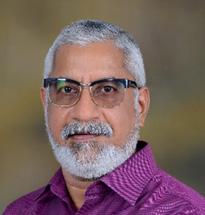
Dr. Seetharam Annadana
Committee: SC Plant Breeding Innovation
Company: Syngenta India Limited
Country/Region: India
Dr. Seetharam Annadana, a seasoned researcher with over 30 years of experience in Research & Development, Project Management, and Technical Consultancy in the Biotech/ Horticulture sector, currently serves as the Market Segment Lead for Pakistan, South & South East Asia at Syngenta. Holding a Ph.D. from Wageningen UR, Netherlands, and an Executive General Management Program from IIM Bangalore, his expertise lies in Molecular Biology, Biotechnology, Trait Integration, Late Stage Trialing, Biotic Trait Screening, Regulatory Science, and Plant tissue culture. Driven by innovation, he has spearheaded numerous initiatives, from managing technology functions in R&D to overseeing the development of GM crops, biotic
stress management, and organic agriculture. With a strong track record in academia and industry, Dr. Annadana continues to make significant contributions to the global seed industry as the Chair of the R&D Advisory Group at the Asia & Pacific Seed Association and also additionally through various honorary activities and advisory roles.
Dr. Khaoula Belhaj Fragnière
Committee: SC Plant Breeding Innovation (Observer)
Company: The International Seed Federation
Country/Region: Switzerland
Dr. Khaoula Belhaj Fragnière serves as the Regulatory Affairs Manager at the International Seed Federation, where she oversees plant breeding innovation and market access & trade groups and topics. She represents ISF in various international meetings, including OECD, ISTA, UPOV, and WTO, among others, pertaining to her areas of expertise. Khaoula has over 15 years of experience in agricultural innovation, private sector, and government affairs. She has held notable positions such as a government officer at the Federal Office for the Environment, Switzerland, and as Senior Regulatory Scientist - Scientific Regulatory Affairs & Standards at Philip Morris International. During her tenure at the FOEN, she represented the Swiss

Federal Office for the Environment in the United Nations (Biodiversity Convention) and the European Food Security Authority (EFSA, GMO panel). She also led law adaptation projects concerning the regulation of new breeding biotechnologies and synthetic biology. Prior to this, she served as a Senior Research Associate at The Sainsbury Laboratory, Norwich, UK, where she led various projects and authored numerous publications on genome editing technologies, and molecularmechanisms of plant-microbe interactions, among others. Khaoula holds an agricultural engineering degree in plant production and seed biotechnology, a master’s in plant breeding, and a PhD in biology from the University of Fribourg, Switzerland.

Ms. Sonny Tababa
Committee: SC Plant Breeding Innovation (Observer)
Company: CropLife Asia
Country/Region: Singapore
Sonny P. Tababa serves as Biotechnology Affairs Director of CropLife Asia (CLA), a regional unit of CropLife International, a plant science industry association that advances innovation in agriculture for a sustainable future.
Based in Singapore, Sonny advocates for policy and regulatory frameworks and approaches that support timely access of agricultural innovations including plant biotechnology in seeds as well as safe and responsible agriculture. Her work ranges from policy advocacy, knowledge sharing and management and technology transfer. With previous work engagements at the Southeast Asian Southeast Asian Regional Center for Graduate Study and Research in Agriculture (SEARCA) as Network Administrator of its Biotechnology Information Center and as Senior Science Research Specialist at the Department of Science and Technology-Philippine Council for Agriculture, Forestry, and Natural Resources Research and Development (DOST-PCARRD). Ms. Tababa completed her BS and MS in Agronomy at the University of the Philippines Los Banos.
ASIAN SEED − 35
APAC policy harmonization, seed movements in focus at 10th Phytosanitary Expert Consultation
MANILA: Officers from 15 National Plant Protection Organizations (NPPOs) are gathered in the Philippines’ capital 5-7 March to collaborate in harmonization and implementation of measures to ensure smooth seed trade regionally and globally.

The 10th Phytosanitary Expert Consultation is organized by the Asia and Pacific Seed Alliance (APSA), this year in collaboration with the Philippine Seed Industry Association (PSIA) and the Philippines Bureau of Plant Industries.
Also supporting this year’s consultation are the United States Department of Agriculture (USDA) through the Mekong-US Partnership, and CropLife Asia.
The annual consultation serves as a key forum to bring stakeholders from the public and private sectors to the table to discuss pressing phytosanitary challenges, developments and exchange progress updates from the field, especially in the implementation of relevant International Sanitary and Phytosanitary Measures or ISPMs. Key topics to be addressed this year include the import of small quantity seed lots for research purposes, identification of pest-free areas for seed production, and harmonizing requirements for import and export phyto certification.
Welcoming participants to Manila, APSA Executive Director, Francine

Sayoc laid the foundation of mutual interest: “Seed is the starting point of food production. In our globalized world, seeds must be able to move across borders so farmers can have access to them, and plant breeders and researchers can continue their vital scientific work to improve crops that thrive in today’s challenging environment,” she said.
“Collectively, we share the responsibility to ensure that healthy seeds circulate worldwide,” she added.
Addressing the meeting remotely from India, APSA President Dr. Manish Patel reiterated the importance of multilateral
cooperation in regional seed production and trade: “Due to diverse conditions, we cannot produce all seeds at will in each of our countries. Certain seed species must be produced in specific areas, and we cannot overlook this. The challenge lies in ensuring that these seeds move from one area to another without compromising biosecurity.”
Likewise, Mr. Khalil Hamid of the United States Department of Agriculture, appealed for the harmonization of related policies in his welcoming remarks.
“We are facing some really considerable challenges, specifically
36 − ASIAN SEED
Dr. Manish Patel, APSA President addressing remotely
in this region where more than half of the world population resides. . . If we don't harmonize policies that enable the trade of seeds, we are in for hard times ahead,” he warned.
In his welcome remarks, BPI Director, Dr. Gerald Glenn F. Panganiban insisted that the dynamic landscape of global agriculture demands a proactive approach, “necessitating consistent engagement among stakeholders.” Considering the myriad challenges of producing safe seeds with respect to the changing climate, the director praised the PEC forum and platform in facilitating ongoing discussions and thus enabling adaption to the evolving regulatory environment.
“Our primary objective this year is to improve seed production and quality while streamlining cross-border seed distribution. We also acknowledge the role of both the private and public sectors in achieving this endeavor,” he concluded.
After summarizing the outcomes of previous consultations, Dr. Mary Ann Sayoc, Chair, APSA Standing Committee for International Trade & Quarantine summed up the consultation’s main objective “to serve as a platform for exchanging best practices, learning from each other, and sharing experiences, ideas, challenges, and solutions related to phytosanitary measures”.
Essential to success will be building trust through public-private partnerships to “promote the international movement of seeds, ensuring farmers’ access to quality seeds.”
Concluding the opening morning’s formal proceedings was a keynote speech by Dr. Derek W. Barchenger, World Vegetable Center Pepper Breeder and Scientist, focused on how to maximize the capacity of Research and Development by facilitating germplasm seed movement.
Dr. Barchenger underlined a strong case for biodiversity and germplasm conservation through utilization, which he said is primarily achieved through crop improvement and breeding.


“Sustainable agriculture plays a crucial role in meeting the UN Sustainable Development Goals. By developing more resistant and tolerant crop varieties, farmers can reduce pesticide usage. Additionally, high-yielding disease-resistant varieties contribute to increased crop production, ensuring better food security,” he concluded.
The consultation proceeded with presentations from delegates from Bangladesh, Cambodia, China,


India, Indonesia, Japan, Laos, Malaysia, Myanmar, New Zealand, Philippines, Thailand, Vietnam and several international stakeholder organizations.
A comprehensive summary of proceedings will be circulated through APSA’s Standing Committee for International Trade & Quarantine, with key quotes and highlights shared through APSA’s social media and Asian Seed Magazine.
Our task: build trust and cooperation between seed companies and regulators. Continue dialogue towards workable solutions and consistent policy environment.
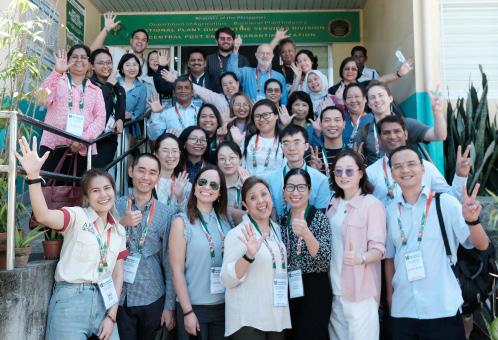
ASIAN SEED − 37
Mr. Khalil Hamid
Ms. Francine Sayoc
Dr. Mary Ann Sayoc
Dr. Gerald Glenn F. Panganiban
ePhyto in focus during STDF Workshop

Coinciding with APSA’s Phytosanitary Expert Consultation in Manila, the Asia-Pacific Association of Agricultural Research Institutions (APAARI) on 8 and 9 March hosted a capacity-building workshop as part of an ongoing Standards and Trade Development Facility (STDF) funded project.
Led by APAARI, with support from APSA, CropLife Asia (CLA), the International Seed Federation (ISF) and American Seed Trade Association (ASTA), the project is entitled “Strengthening phytosanitary compliance to boost seed trade in the Asia Pacific.”
A total of 39 participants from seven countries – Bangladesh, Cambodia, Lao PDR, Viet Nam, Nepal, Philippines, and Thailand) – took part in the workshop focused on enhancing phytosanitary compliance and facilitating the seed trade across South and Southeast Asia by encouraging the adoption of the electronic phytosanitary (ePhyto) system.
In addition to ISF, APSA, CLA and ASTA, the workshop had expert representation from the International Plant Protection Convention (IPPC), United Nations International Computing Center (UNICC) and United States Department of Agriculture or USDA.
The workshop was designed to build capacity of National Plant Protection Organizations (NPPOs) from participating countries, especially on International Standards for
Phytosanitary Measures No. 12 (ISPM 12) and the International Plant Protection Convention (IPPC) ePhyto solution (electronic phytosanitary certificate). These collective efforts underscored a pivotal move towards streamlining seed trade across South and Southeast Asia, enhancing efficiency, reliability, and safety in the agricultural sector.
Mr. Simon Padilla representing the STDF highlighted the past efforts of the STDF and the immense importance of the project for facilitating safe trade through the digitization of phytosanitary certificates and seed-specific pest lists in the region.
Ms Dinh Thi Nhu, the national plant protection officer from Viet Nam stated “It is a good platform to exchange data and information on how countries are approaching ePhyto to facilitate seed trade in a faster and safer way. We learnt a lot from this workshop.”
Khalil Hamid, Program Manager, Foreign Agricultural Service Office of Global Programs, from the United States Department of Agriculture (USDA), underscored the transformative potential of ePhyto in streamlining seed trade and ensuring quality seeds’ efficient and reliable flow.
“Implementation of ePhyto will continue to greatly enhance seed trade across South and Southeast Asia, translating into efficient and reliable flow of quality seeds. USDA actively supports the regions’ efforts to further adoption and implementation of ePhyto among others through the STDF project,” he stated.


Dr. Ravi Khetarpal, Executive Director of APAARI, highlighted the workshop’s critical role in facilitating harmonization of digital advancements in phytosanitary documentation for international seed movement for trade from the region. “The STDF project brought together NPPOs of selected countries from South and South East Asia mainly to discuss the status of ePhyto in their countries with international experts. Digitization of exchange of phytosanitary documents is bound to expedite smooth and safe trade from the region,” he explained.
Rose Souza Richards, Phytosanitary Affairs Manager, ISF, praised the ePhyto system’s significant advancements in global agricultural trade. “The adoption of the ePhyto system marks a significant leap forward in enhancing the efficiency, security, and sustainability of global agricultural trade,” she noted.
Participants engaged in in-depth discussions on the current state and future direction of phytosanitary measures, digital certification processes, and the significant impact of ePhyto on global agricultural trade. The key outcomes included a unified commitment towards adopting the ePhyto system, a strategic roadmap for its implementation, and the fostering of regional collaborations. The workshop underscored the critical role of digital advancements in phytosanitary documentation, promising a more sustainable and prosperous future for agriculture in the Asia-Pacific region and beyond.
38 − ASIAN SEED




From the heart, at the helm
The Asia and Pacific Seed Alliance (APSA) is at the cusp of a transformative journey, and at its helm stands Francine Sayoc, the newly appointed Executive Director.
With a global perspective and a passion for seeds, Ms. Sayoc brings a wealth of experience to APSA’s mission of ensuring quality seeds for the region and beyond. In this exclusive interview, we delve into Ms. Sayoc’s leadership philosophy, her remarkable career trajectory, and the harmonious blend of her professional and personal pursuits. From jazz melodies to policy shaping, Francine Sayoc embodies the spirit of growth, innovation, and collaboration. Join us as we explore the fertile ground where seeds meet vision, and where APSA’s future takes root under the guidance of its dynamic leader.
Leadership and Management Style: Can you describe your leadership style? How do you approach decision-making and team management?
I believe in enabling people to do what they do best. To me, the job of a leader is to clarify the vision and the goals, and to empower team members to contribute their unique expertise towards achieving those. I am incredibly lucky to be working with a highly capable, talented, and passionate Secretariat.
When it
comes to decision-making, I go back to being clear on the end goal. I have the benefit of being a newcomer, so I look at things with fresh eyes. I tend to ask a lot of questions. I am always curious: what big or small improvements can we make, what things are adding value and what are not, and where can we reprioritize? Where can we say no to a few things so we can say yes to bigger things?
What strategies do you employ to foster collaboration and innovation within an organization?
I really admire the spirit of collaboration in the team. It was apparent to me from Day 1. I see people supporting each other and being exceptionally service-minded, especially towards members. I credit my predecessors and the current team members for building such a culture of teamwork.

I always try to encourage people to try new things. Experimenting with new ideas and getting out of “business as usual” keep the work fulfilling. I also tend to favor simple solutions over complicated ones. There’s genius in simplicity.
Could you share an example of a challenging situation you’ve faced thus far in your career and how you handled it?
I think the biggest challenge in the role so far is to tread the fine line between what is strategic and what is operational. There is a risk of getting too much into the nitty-gritty of the association’s day-to-day, so I must remind myself to devote enough time and energy on long-term matters too – balancing what is urgent now, with paving the way to what is important in the next 3-5 years.
Professional Experience and Expertise:
In your formal experience in the seed industry private sector (most recently as Communications Manager at the International Seed Federation and prior to that at East-West Seed International) do you have any specific achievements/projects/initiatives that you are particularly proud of?
I’m proud of how I’ve helped bring global seed communications experts together in the ISF Expert Group - Communications. In the last few years, we’ve developed storytelling and comms resources on seed in a collaborative way. I think that now more than ever, organizations realize just how vital communication is. It’s a core competency in an association to foster a better understanding of complex topics and to
create interest around them – both among members and in the outside world. And so giving our members access to tools that can support them in their advocacies has been the focus of my work there.
Both in ISF and East-West Seed, I had the chance to lead several campaigns centered on innovation, youth, climate change and others. With the team, we’ve capitalized on digital especially during COVID, opening new channels to communicate and reinforcing online communications and social media to sustain engagement.
Thinking back to when you first moved to Thailand to commence in your formal employment/role abroad foray into the seed sector with EWS, and then living/ working in Thailand for about 8 years, ultimately moving to Switzerland to the pinnacle of international seed industry, and now back to Asia. . . how does it feel to come full circle?
Transitioning from the Philippines to Thailand to Switzerland and back to Asia has been a remarkable journey, providing me insights into diverse cultures, ways of working, and challenges facing the seed industry. It feels great to come full circle, and I hope I can draw from these experiences and broad perspectives to drive positive change in the Asia-Pacific region.
Personal Insights:
We heard you’re an aspiring jazz singer. How has music influenced your professional life, and how do you balance your passion for music with your leadership responsibilities?
I studied jazz for fun while I was living in Lausanne. Jazz music is improvisational in nature and teaches the importance of adapting to changes quickly. Music in general also develops one’s ears for active listening and riffing on ideas with other people. I try to take those skills to the workplace too.
If you had to relate yourself to a specific actor, movie, or TV show character, who would it be and why?
I love comedians and satirists. Tina Fey, John Oliver, and Julia Louis-Dreyfus are some of my favorites. There’s a show on HBO called Veep where Julia Louis-Dreyfus plays a fictional vice president of the United States. Her character Selina Meyer is hilariously awful and everything I don’t want to be as a leader.
What hobbies or interests do you pursue outside of work, apart from your musical aspirations?
I appreciate architecture, art, nature, and good food. An ideal travel destination for me should have those.
Vision for APSA:
What goals do you have for APSA during your tenure as Executive Director?
I see that APSA is primed for becoming a stronger ally to business. Promoting innovation, market access,
respect for intellectual property, and nurturing talent are foundational to this.
I have also been devoting the early days of my tenure to consulting with key stakeholders and APSA leadership to gauge priorities. The ones that often come up are member engagement: how to streamline what we offer to our members and build a unique value proposition as an association. I also want to improve our technical capacity by leveraging the expertise available to us so that we are better able to influence policymaking in the region and encourage a regulatory environment that will help the seed business thrive and keep its license to operate. Of course, maintaining financial stability and sound operations at Secretariat level is integral to all this.
How do you plan to collaborate with APSA’s diverse stakeholders, including team members, member associations, and seed companies?
Strengthening partnerships and creating spaces for open dialogue are the bread and butter of APSA. In the first quarter of the year, we have organized several important regional meetings and consultations including the Phytosanitary Expert Consultation (5-7 March, Manila), the PVP and Biodiversity Consultation (22-25 April), Integrated Vegetable Seed Companies meeting (22 April), and Seed Associations meeting (23 April). I also look forward to working very closely with the APSA leadership via the OB and EC in the coming months to chart a roadmap for APSA in a rapidly changing business landscape.
In your view, how can APSA drive innovation, promote sustainability, and enhance food production?
The Asia Pacific region is an exciting and dynamic one, highly competitive and entrepreneurial. The seed sector has a far-reaching contribution to food security in this part of the world that is home to about 60% of the global population and where much of food production rests on smallholder farmers.
Seed is the starting point of food production. Especially today when growers feel the increasing impact of climate change, seeds can offer a bundle of solutions to many of the challenges of farmers and consumers. But today there is a lot of pressure on the industry and the food system in general. Policies that govern seed movement and plant breeders’ access to new technologies determine how easily farmers can get their hands on the solutions offered by high-quality seeds. That’s something we need to work on harmonizing and aligning with science- and risk-based considerations. A key message here is that when the regulatory environment is at odds with business, it’s not just the industry that suffers but the delivery of innovation to farmers too.
Therefore, we have a big task in deepening understanding and trust between public and private sectors. I would like APSA to be the place where seed issues and challenges are brought to the table and where solutions are found collaboratively.
ASIAN SEED − 41

Coming of age: APSA marks important milestone in 2024
In 1994, a seed was planted: becoming the world’s first regional seed association during the Foundation Meeting in Chiang Mai, Thailand, the Asia Pacific Seed Association (APSA) was founded. Over the subsequent years and decades, this idea grew into an active association representing the private seed sector in the Asia Pacific. APSA has been supporting its members in navigating through the shifts in the business and the regulatory environment and delivering on its original mission to ensure quality seed for the world. Today, APSA (now the Asia and Pacific Seed Alliance) celebrates its 30th anniversary; our members and partners around the world stand strong not just as an international trade organization, but a living legacy that has germinated, blossomed, and continues to bear fruit in various forms.
A Symbol of Wisdom and Resilience
The 30th anniversary is traditionally associated with pearls. These lustrous gems, formed within the protective embrace of oysters, symbolize wisdom, purity, and resilience. Similarly, lilies, particularly white lilies, are often chosen to commemorate the 30th anniversary due to their symbolic significance of purity, devotion, and renewal. The lily's pristine petals and graceful form reflect the purity of the bond that has been nurtured over time, while its resilient nature symbolizes the strength and longevity of the relationship.
Just as seasons transition, APSA has weathered cycles of growth, learning, and renewal over these past three decades. Each member’s story and memory add a brushstroke to the canvas of APSA’s journey.
Honoring Our Champions
The APSA Board of Directors would like to express heartfelt appreciation for all of the invaluable contributions, leadership, and vision that have laid a solid foundation for what APSA is today, and is hereby calling on all of our members and partners –past and present – to tell the world. To celebrate and pay tribute to the people and memories that have woven the fabric of the association’s storied journey, APSA has launched a special anniversary website to collect and share reflections, memorable stories, and well-wishes on this occasion. Responses will grace our social media, magazine, and newsletters, reminding us of the roots from which we’ve grown. Culminating with formal celebrations during the 2024 Asian Seed Congress this December, these stories will adorn a dedicated memory wall at event venue in Sanya, China, unveiling this living testament to APSA’s legacy.


 Zhang Mengyu APSA Past President and Honorary Lifetime Member
Zhang Mengyu APSA Past President and Honorary Lifetime Member
I wish that the 30-year-old and still very young APSA will overcome all obstacles to become stronger!

On the occasion of APSA's 30th anniversary, I would like to wish the APSA secretariat, director, OB, EC and all members a very happy moment of celebration & a reminder that we are APSA. Like the seed we sell, APSA is a living thing that needs care and attention to thrive and grow. All the best for the future of our vibrant association.

My well-wishes for the future of APSA and other regional seed associations, such as AFSTA (African Seed Trade Association) is that we share our experiences to develop more local “seedsmanship” (or the more gender neutral term which I like to use 'Seedcraft') and non-patented genetics for a healthier and income generating future.

Avtar
I wish APSA should be the best platform for the Asia and Pacific region, as well as for global players in the seed business. I also hope that some more countries will be included, such as CIS countries.

Please share your memories with us @30years.apsaseed.org
Singh Dhindsa APSA Past-President 2013 - 2014
Brenda Dossey APSA Past-President 2017 - 2018
Simon Groot Founding Father and Honorary Lifetime Member
































#ASC2024
#SeedYouInSanya












 Ms Francine Sayoc APSAExecutive Director
Ms Francine Sayoc APSAExecutive Director













 Hacı Ömer GÜLER Chairman of the Board of Turkish Seed Union (TURKTOB)
Hacı Ömer GÜLER Chairman of the Board of Turkish Seed Union (TURKTOB)








 Photos courtesy of Tourism New Zealand
Photos courtesy of Tourism New Zealand
Photos courtesy of Tourism New Zealand
Photos courtesy of Tourism New Zealand














































































































 Zhang Mengyu APSA Past President and Honorary Lifetime Member
Zhang Mengyu APSA Past President and Honorary Lifetime Member















